- Home
- Carolyn Keene
Clue in the Ancient Disguise Page 3
Clue in the Ancient Disguise Read online
Page 3
"What made it even worse," Nancy continued, "was that the person I visited tonight had just been telling me how a woman was frightened to death thirty years ago by a red car that almost ran her down."
The housekeeper shuddered slightly and clucked her tongue. "No wonder you were upset. That's really spooky, even if the whole thing was just a coincidence—and it surely must have been, Nancy, don't you think so?"
"You're probably right, Hannah. But that wasn't all. Just as I got home and started to go up on the porch, a tough-looking man stepped out of the shrubbery. He tried to scare me off a case I'm investigating for Dad."
Hannah was shocked and outraged by this news. "Shouldn't we call the police?" she urged.
"I'm afraid it wouldn't do much good," Nancy replied. "Even if I'd phoned the moment I got in the house, he'd probably have been long gone by the time a scout car got here. I imagine he had a car parked up the street or around the corner."
"Poor dear, you've really had an awful night of it!" The housekeeper leaned down to give
Nancy a comforting hug and added, "You be sure and tell your father all this when he gets home, and see what he says."
"That's exactly what I intend to do."
"Good! In the meantime, I'm going to make you a nice cup of tea."
"Oh, would you, Hannah? That'd be lovely!"
Nancy felt a great deal better, now that she had unburdened herself to the motherly housekeeper. Hannah Gruen's sturdy common sense always helped to put even the eeriest mystery into the proper perspective.
She was prepared to stay up and keep Nancy company until Mr. Drew returned, but the teenage detective would not hear of it. "No, no! You go to bed, Hannah," she insisted. "Isn't tomorrow your day at the hospital?"
"Yes, it is. So perhaps I will, Nancy, if you don't mind," Hannah said, stifling a yawn. She had volunteered to work at the River Heights Hospital one day a week.
After Hannah had gone upstairs, Nancy sat pondering the unpleasant encounter that had taken place when she arrived home. I wonder who that fellow is, she mused.
The swarthy man had spoken with a French accent. Could he be Pierre's enemy, the one who set the workshop fire and wrote the warning on the wall? . . . But no, that hardly seemed possible. They had seen him outside the restaurant just before Nancy got the call about the fire, so how could he be in two places at once?
Presently she heard her father's key turning in the lock and went to greet him.
"Well, this is a pleasant surprise." He smiled wearily and kissed Nancy. "But how come you left your car in the drive, dear? I hope you aren't planning to go out again this late, because I've already put it away."
"No, that's fine, Dad. Thanks for attending to it. I'm sorry I left you that extra chore," Nancy apologized. "I meant to do it myself but forgot. You see, I had a rather unpleasant experience tonight . . ."
She broke off suddenly with a rueful grin. "But never mind that now, I'll explain later. First, come on in the kitchen, Dad, and let me make you a sandwich and a cup of tea."
"Just the tea, thanks, Nancy." Carson Drew patted her fondly on the shoulder. "I had a late working dinner with a client."
In a few minutes the tea was ready. As they sat sipping it at the kitchen table, Nancy told her father about the day's mysterious developments. Like Hannah, he was greatly concerned about the swarthy stranger who had lurked outside the house in order to question Nancy. Mr. Drew said he would personally report the incident to Police Chief McGinnis next morning.
"Thanks, Dad. And by the way," Nancy continued, "I have a new clue to follow up in Pierre Michaud's case. The maid I was just telling you about, Emily Owsler, said that Louise Duval's lawyer was Jonas Becker, of Hylig & Becker. Do you know him?"
"I did, Nancy, but I'm sorry to say both he and Mr. Hylig are dead. The firm is now run by one of their former law clerks, a fellow by the name of Maxwell Fleen."
Nancy was disappointed. She explained that she had been hoping Jonas Becker could supply the name of the expert Miss Duval had hired long ago to carry out the foreign research she needed. "But maybe Mr. Fleen can help me."
Carson Drew shook his head dubiously. "Fleen's not a very accommodating fellow. I've always had a feeling that . . . well, that he's not quite on the up and up."
Nancy frowned uncertainly, knowing how reluctant her father was to cast aspersions on another member of his profession without good reason. "Care to be any more specific, Dad?"
Mr. Drew shrugged. "Let's just say I get the impression there's something about his character or actions that wouldn't stand too close scrutiny. Anyway, I'm not on a friendly footing with him."
"Thanks for warning me, Dad. I'll bear that in mind."
Next morning, on her way to the art museum, Nancy stopped in the offices of Hylig & Becker. The receptionist, a stout, heavily made-up woman, sniffed in disapproval on hearing that Nancy had no appointment.
"Kindly have a chair. I'll see if Mr. Fleen can spare you a moment."
The atmosphere did not improve when Nancy was finally ushered into Maxwell Fleen's inner sanctum. He was a narrow-faced, pinched-lipped man, sallow and scowling. After hearing her request, Fleen shook his head curtly. "Absolutely not."
"But Miss Duval has been dead for thirty years," Nancy pointed out. "Could it do any possible harm now to answer my question?"
"Miss Drew," Fleen said coldly, "three years, thirty years, it makes no difference. I would never discuss my client's affairs with an outsider."
Disappointed, Nancy left the fourth-floor suite of offices and went back down to the street, where she had parked. She smiled in surprise as she saw Bess Marvin and Bess's cousin, George Fayne, standing by her car.
"Well! Small world. What are you two doing here?"
George, a slim girl with short, dark hair, said, "This is your car, isn't it, Nancy?"
"Of course. Don't you recognize it?"
"Just wanted to make sure," George explained. "We caught someone snooping inside it a few minutes ago."
"We don't know what she was doing," Bess added indignantly, "but she had her head and arms inside the window."
"Who did?" Nancy asked, startled and mystified.
"A tall, skinny girl with sort of light brown hair. But don't ask us who she was. She didn't wait around to answer any questions."
"I think she saw us coming in the rear-view mirror," George went on. "When Bess and I started hurrying toward the car, she ran off."
"Hm." Nancy considered for a moment. "I guess there's nothing too bad she could do just leaning in the window . . . unless she was trying to steal something out of the glove compartment. Let me check."
To Nancy's relief, the glove compartment was still locked. "Oh well, no harm done, I guess. Just another mystery to add to my collection. Are you two out shopping, by the way?"
"We were," Bess said. "George just bought a new pair of shoes. Why?"
"Care to come to the art museum with me?"
"Sure, sounds like a fun idea!" George spoke up enthusiastically. Bess agreed.
Five minutes later, they arrived at the imposing, Greek-pillared museum that was set in a lovely green park. But as they walked into the lobby, an alarm bell suddenly began ringing loudly!
5. Weird Intruders
A buzz of excitement filled the museum. Visitors milled about, staring in all directions. Some turned to query the nearest guard or attendant, but the museum employees seemed as startled as everyone else.
"What's happening, Nancy?" Bess exclaimed.
"I've no idea," her friend admitted with a helpless shrug.
As suddenly as it had begun, the alarm bell stopped ringing. As the echoes died away, a calming voice spoke over the public-address system. "Ladies and gentlemen, this is the curator speaking. There is no need to leave the building, so please do not be alarmed. What you have just heard was a mistake—repeat, a mistake. The alarm bell went off accidentally.
We regret any inconvenience this may have caused, and we hope you will go on enjoying yo
ur public art museum as if nothing has happened. Thank you."
"Whew! That's a relief," said George.
Nancy smiled and agreed, then asked, "Do you two want to look around while I go talk to the curator?"
"Okay," Bess said eagerly. "We'll start in the Medieval and Renaissance rooms over there, and work our way around to Modern."
Nancy went up a broad, marble staircase that arose from the center hall of the museum. On the second floor, she made her way to a suite of offices at the rear of the building.
The balding, elderly curator, Mr. Gregory, rose from his desk to greet her as his secretary announced the pretty young sleuth.
"Nancy, how good of you to stop in! It's a pleasure to see you!"
"I certainly arrived at an exciting moment," Nancy chuckled.
Mr. Gregory smiled ruefully. "Repairmen are testing and reconnecting the alarm system, which is how it happened to go off. So in a way it's related to your coming here this morning."
He invited her to have a chair and added, "How much do you know about our break-ins?"
"Only the bare facts," Nancy replied. "There have been two, haven't there?"
"Yes, and the curious thing is that nothing was taken on either occasion."
"That is odd," Nancy mused. "Are you sure they weren't just pranks?"
"Quite sure. The first time, our night watchman was violently attacked, and the same thing almost happened during the second break-in."
"Please tell me about them, Mr. Gregory."
The curator explained that, on the first occasion, the intruders were believed to have hidden in the public rest room just before closing time. This was indicated by cigarette ashes and a chewing-gum wrapper which were found on the tiled floor next morning, even though the rest room had been cleaned by a janitor at the end of the previous day.
"Later, after the staff had left, the intruders emerged and overpowered the night watchman. They left him tied and gagged."
"Do you have any idea what they did, or where they went, after tying up the watchman?" Nancy asked.
"At least part of the time they were in the basement storage area. We know that definitely, because things had been moved around."
Mr. Gregory said that because of the first break-in, he had alerted guards to search all rest-rooms extra carefully just before closing time.
Perhaps because of this precaution, the intruders resorted to other means for their second break-in.
"The alarm system was tampered with. Police Chief McGinnis said it looked like the work of professional burglars."
"But again nothing was taken?" put in Nancy.
"Not as far as we could determine. However, soon after midnight, the watchman thought he heard noises in the basement. When he entered the storage area to investigate, a stack of crates toppled over. He could have been badly hurt. As it was, he suffered a bruised and sprained shoulder. We think the accident was contrived, and that the intruders escaped while this was happening."
As Nancy pondered what Mr. Gregory had just told her, she noticed a large, framed photograph hanging near his desk. It showed several people standing on the front steps of the museum. From their old-fashioned clothing and the slight fading and yellowing of the picture, it appeared to have been taken many years ago.
A hand-lettered inscription at the bottom of the photograph read: Curator and Members of the Duval Family at the Opening of the River Heights Art Museum, 1893.
"The Duval family!" Nancy exclaimed in surprise. "Are they connected with this museum in some way?"
"Oh yes, indeed. They donated a great deal of money to help build it. In fact, they were moving spirits in founding the museum."
Nancy could not help being struck by the odd coincidence—that just when she was investigating a mysterious letter written by one of the Duvals, unexplained break-ins should occur at a museum endowed by the same family.
Or was it no more than that, a mere coincidence?
"Tell me, Mr. Gregory," Nancy asked on a sudden impulse, "do you know anything about a Miss Louise Duval?"
"Louise Duval?" The curator frowned for a moment, then settled back in his chair with a reminiscent smile. "Yes, as a matter of fact I do. She's dead now, of course, but when I first came to work here, I recall the man who was then chief curator telling me about a tiff he'd had with the old lady."
Mr. Gregory related that when the River Heights Art Museum had first opened, the Duval family had contributed an oil painting as a starter item for the museum's collection.
"The painting was authentically old, mind you, but of no great artistic value. It hung in the museum throughout the first half of this century, but was finally banished to a storeroom along with other less important art works that we have no room to display. Unfortunately, Miss Duval became incensed when she heard this."
"What happened?" Nancy inquired keenly.
Mr. Gregory shrugged. "She protested very emphatically, but the curator stood firm. He told me that he thought she intended to consult some outside art expert and try to prove that the painting was important enough to keep on display. But she died later that fall, I'm sorry to say, so nothing more was heard on the subject."
Nancy was intrigued. If Miss Duval had passed away soon afterward, this meant that the incident Mr. Gregory described must have taken place the same year that she wrote her mysterious letter to Pierre's grandfather.
And perhaps the painting he referred to was the subject of the research that Miss Duval's maid had mentioned!
"Would it be possible to see that painting, Mr. Gregory?" Nancy asked. "It may be connected with another case I'm working on."
"Of course. But I'm afraid it may take a while to locate it. I'll have one of my staff check it out and let you know when you can view it."
Nancy thanked the curator and promised to apply her detective skills to the mystery of the puzzling break-ins.
When she returned to the main floor of the museum, she found Bess and George talking to a handsome young man in the room where modern works of art were displayed.
"This is Lee Talbot, Nancy," said George Fayne.
"He won first prize at the Riverview Art Show!" Bess added enthusiastically.
"Oh yes, I heard about that." Nancy smiled as he shook her hand. "Congratulations!"
"Thanks. Too bad you girls weren't there to see the award ceremony."
The young man was tall, slim, and casually yet trendily dressed in a cable-knit Irish fisherman's sweater and designer jeans. From her breathless manner and the admiring way her eyes dwelt on him, Bess was clearly very much aware of Lee Talbot's wavy-haired good looks. And he, in turn, seemed to enjoy being the center of attention.
"Was it a painting that won the prize?" Nancy asked him politely.
"Yes, I called it Feline Still Life!'
"A memorable composition," said a mocking voice on Nancy's left.
She and her companions turned and saw a red-haired man in a corduroy jacket, sport shirt, and slacks. Nancy recognized him as Peter Worden, a reporter who wrote on entertainment and art events for the River Heights Record. He had spoken rather sarcastically, and Lee Talbot responded with an angry scowl. "Nobody asked your opinion, Worden!" "I'm not surprised. You know how I feel about overdoing a subject," the reporter said coolly. "Looking around for fresh material, are you?"
At this remark, Lee Talbot's face flamed with rage. He doubled up his fists and lunged at the reporter!
6. Copycat
Nancy held her breath, wondering what would happen next.
As the artist came toward him, snarling "Why you—I" Peter Worden stood his ground, refusing to flinch or back away. He may or may not have expected Lee Talbot to punch him, but he certainly showed no sign of fear. In fact, he looked so confident and prepared for the attack that perhaps he caused the young artist to think twice about starting a fight.
Whatever the reason, Talbot's hands slowly unclenched and he seemed to bottle up his anger. Turning to the three girls, he apologized curtly. "So
rry. I certainly don't want to embarrass you by causing an ugly scene, but I don't think I can stand the air pollution around here any longe: 'Bye for now, girls!"
Jamming his hands in his jeans as if to keep them from turning violent against his will, the artist stalked off toward the museum lobby, still flushed and fuming.
Nancy and her two friends stared after his retreating figure and then turned, one by one, to look at Peter Worden.
Bess said, "What on earth was that all about?"
The newsman grinned sheepishly. "Guess I owe you girls an apology, too, for interrupting your chat. I shouldn't have said what I did to Talbot."
George, still puzzled, said, "But what made him so angry?"
Worden shrugged. "It's a long story. I'm a-fraid his prize painting reminded me too much of a picture I'd seen here in the museum. And I made the mistake of hinting as much."
Bess looked indignant. "Why, that's practically saying that he copied!" She clearly felt protective toward the handsome young artist.
"Now Bess, . . ." Nancy said soothingly.
"No, I didn't accuse Talbot of copying," the reporter responded. "But the fact remains, his picture did remind me of another painting. You see, they both portrayed an odd combination of subjects."
"What did Lee's picture show?" asked George.
"An Egyptian bust, a gray cat, and a moon in the background. And unless I'm very much mistaken, so did another picture that I once saw right here in the River Heights Art Museum."
The three girls were somewhat taken aback by Worden's revelation.
"Golly," George muttered, "the way you describe it, Lee's painting sounds eerie! Finding two like that would be pretty unusual!"
The newsman nodded. "That's really why I came here today ... to make sure I didn't just dream the whole thing up."
Nancy turned to her friends. "Did either of you notice such a picture?"
When both shook their heads, Nancy said to Worden, "Bess and George have just been going through the museum. Maybe you're mistaken."
The reporter's shoulders lifted in a faint shrug. "Could be. But if I'm wrong, why did he get so upset? You know that old saying, 'where there's smoke, there's fire.' Anyhow, I'm going to stroll on through and look over the collection. I always enjoy the time I spend in here."

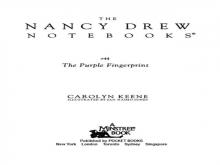 The Purple Fingerprint
The Purple Fingerprint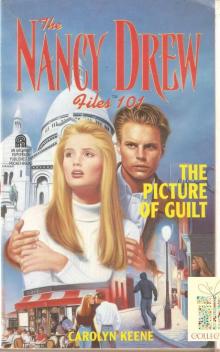 The Picture of Guilt
The Picture of Guilt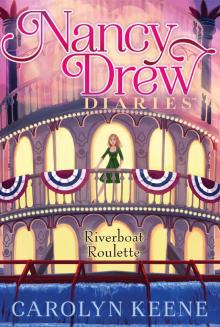 Riverboat Roulette
Riverboat Roulette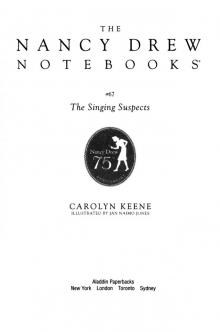 The Singing Suspects
The Singing Suspects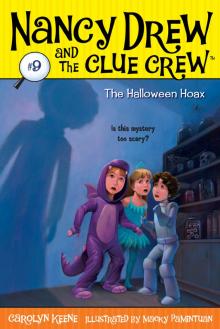 The Halloween Hoax
The Halloween Hoax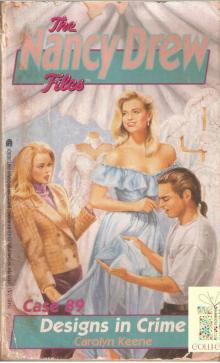 089 Designs in Crime
089 Designs in Crime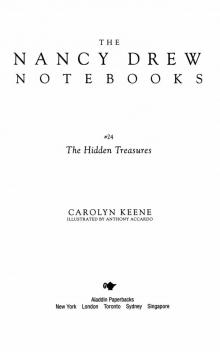 The Hidden Treasures
The Hidden Treasures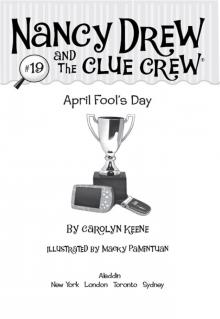 April Fool's Day
April Fool's Day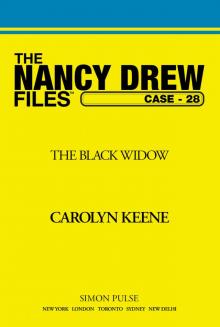 The Black Widow
The Black Widow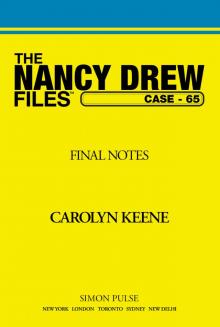 Final Notes
Final Notes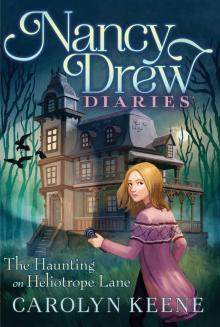 The Haunting on Heliotrope Lane
The Haunting on Heliotrope Lane The Runaway Bride
The Runaway Bride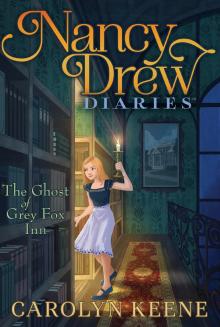 The Ghost of Grey Fox Inn
The Ghost of Grey Fox Inn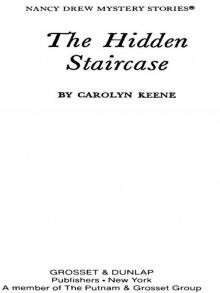 The Hidden Staircase
The Hidden Staircase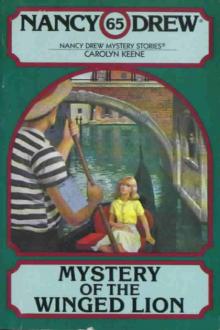 Mystery of the Winged Lion
Mystery of the Winged Lion Over the Edge
Over the Edge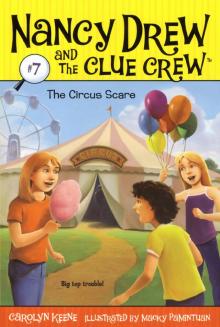 The Circus Scare
The Circus Scare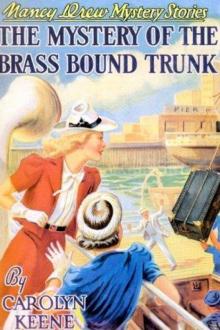 The Mystery of the Brass-Bound Trunk
The Mystery of the Brass-Bound Trunk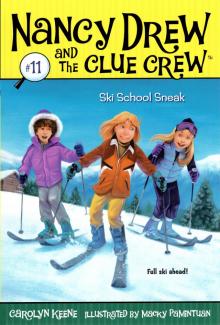 Ski School Sneak
Ski School Sneak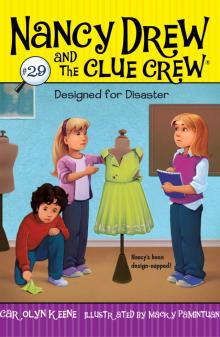 Designed for Disaster
Designed for Disaster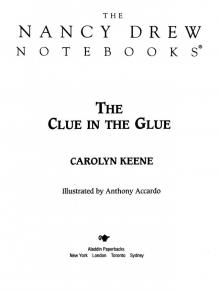 The Clue in the Glue
The Clue in the Glue Cold as Ice
Cold as Ice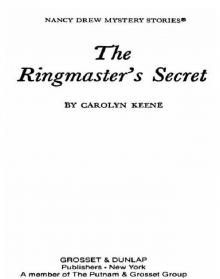 The Ringmaster's Secret
The Ringmaster's Secret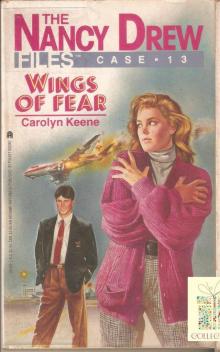 013 Wings of Fear
013 Wings of Fear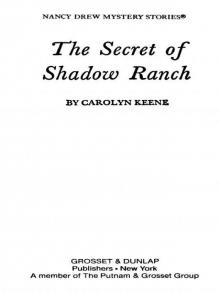 The Secret of Shadow Ranch
The Secret of Shadow Ranch Not Nice on Ice
Not Nice on Ice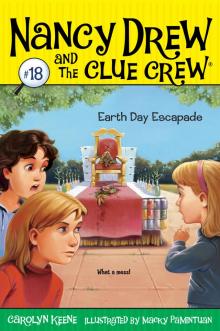 Earth Day Escapade
Earth Day Escapade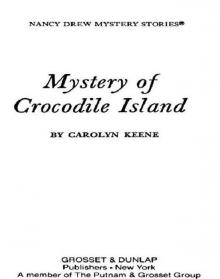 Mystery of Crocodile Island
Mystery of Crocodile Island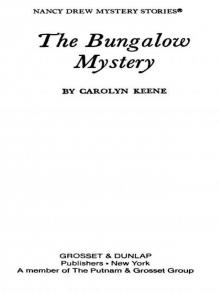 The Bungalow Mystery
The Bungalow Mystery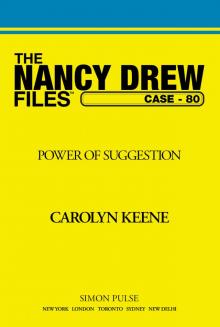 Power of Suggestion
Power of Suggestion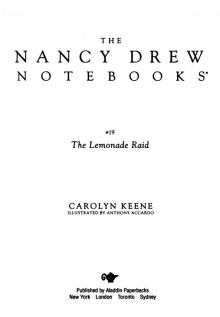 The Lemonade Raid
The Lemonade Raid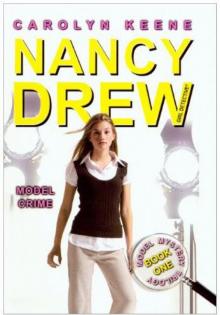 Model Crime
Model Crime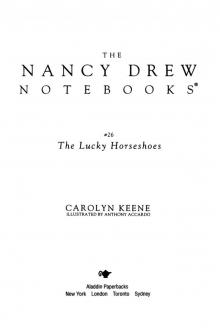 The Lucky Horseshoes
The Lucky Horseshoes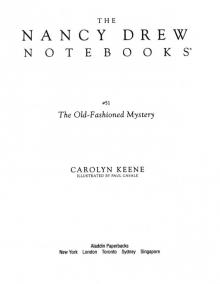 The Secret of the Old Clock
The Secret of the Old Clock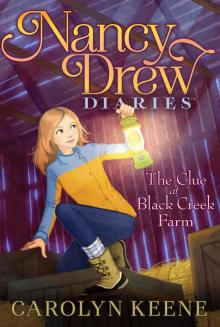 The Clue at Black Creek Farm
The Clue at Black Creek Farm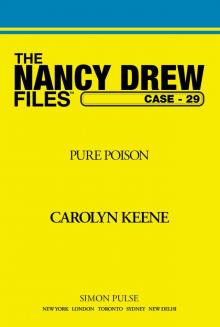 Pure Poison
Pure Poison Nobody's Business
Nobody's Business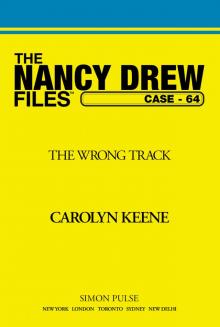 Wrong Track
Wrong Track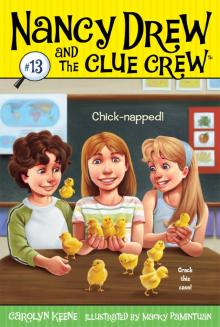 Chick-Napped!
Chick-Napped!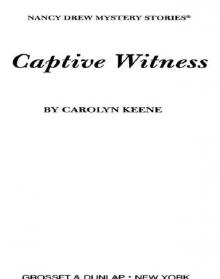 Captive Witness
Captive Witness If Looks Could Kill
If Looks Could Kill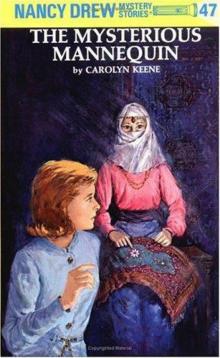 The Mysterious Mannequin
The Mysterious Mannequin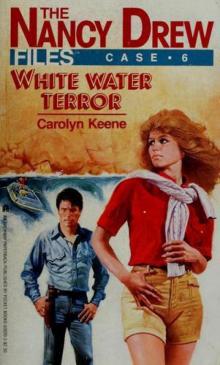 White Water Terror
White Water Terror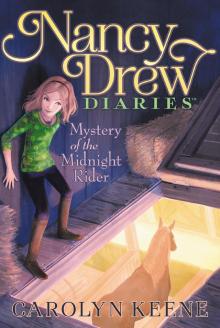 Mystery of the Midnight Rider
Mystery of the Midnight Rider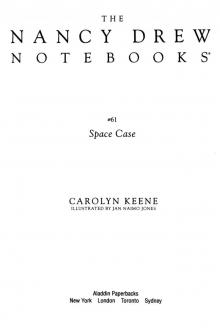 Space Case
Space Case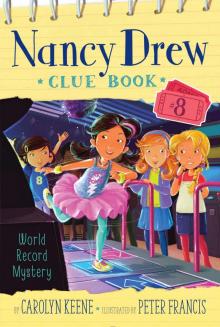 World Record Mystery
World Record Mystery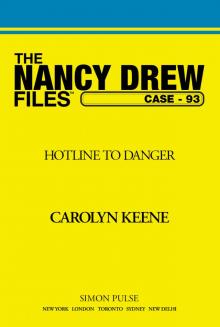 Hotline to Danger
Hotline to Danger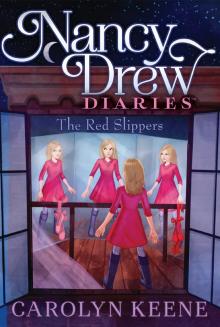 The Red Slippers
The Red Slippers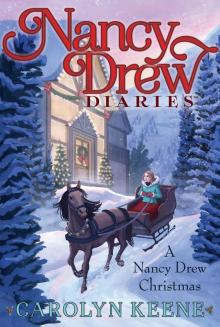 A Crime for Christmas
A Crime for Christmas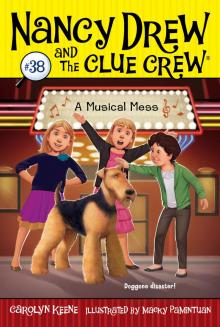 A Musical Mess
A Musical Mess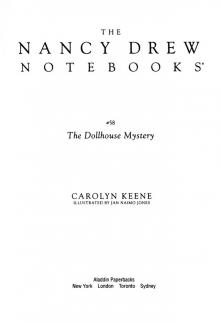 The Dollhouse Mystery
The Dollhouse Mystery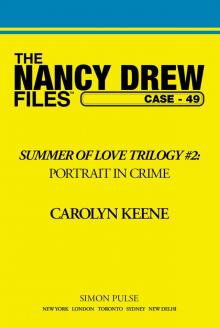 Portrait in Crime
Portrait in Crime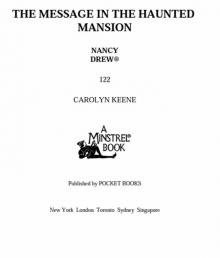 The Message in the Haunted Mansion
The Message in the Haunted Mansion Playing With Fire
Playing With Fire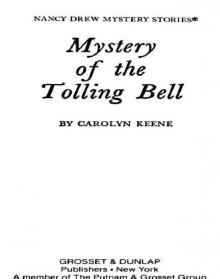 Mystery of the Tolling Bell
Mystery of the Tolling Bell Cutting Edge
Cutting Edge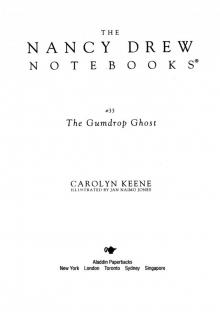 The Gumdrop Ghost
The Gumdrop Ghost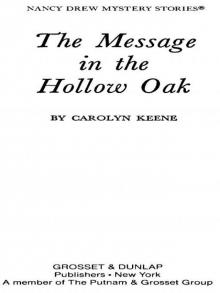 The Message in the Hollow Oak
The Message in the Hollow Oak Trial by Fire
Trial by Fire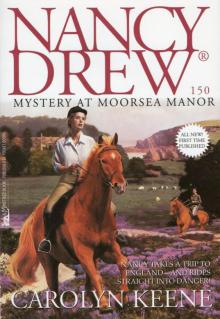 Mystery at Moorsea Manor
Mystery at Moorsea Manor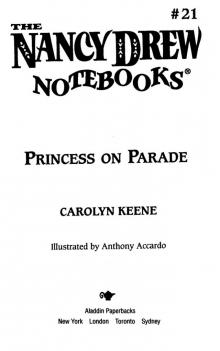 Princess on Parade
Princess on Parade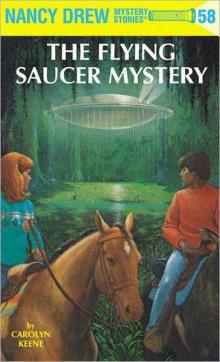 The Flying Saucer Mystery
The Flying Saucer Mystery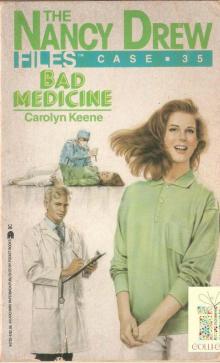 035 Bad Medicine
035 Bad Medicine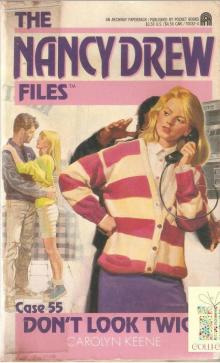 055 Don't Look Twice
055 Don't Look Twice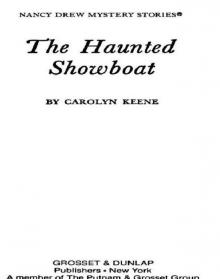 The Haunted Showboat
The Haunted Showboat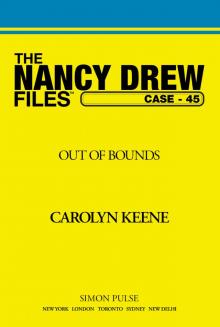 Out of Bounds
Out of Bounds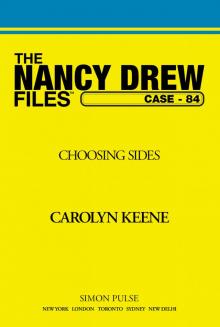 Choosing Sides
Choosing Sides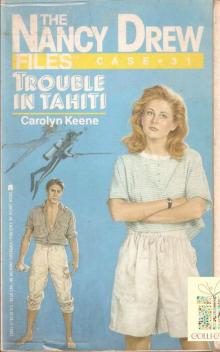 031 Trouble in Tahiti
031 Trouble in Tahiti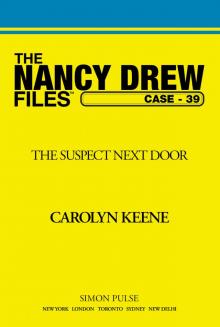 The Suspect Next Door
The Suspect Next Door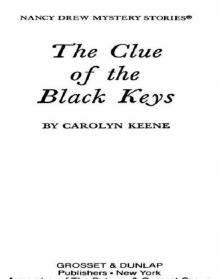 The Clue of the Black Keys
The Clue of the Black Keys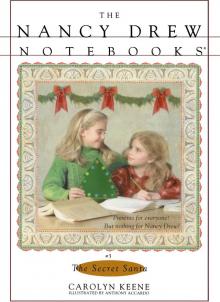 The Secret Santa
The Secret Santa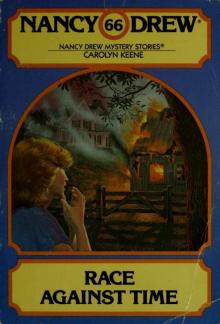 Race Against Time
Race Against Time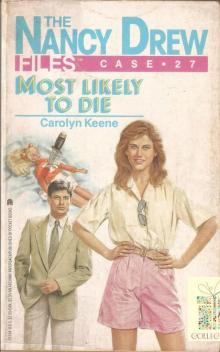 027 Most Likely to Die
027 Most Likely to Die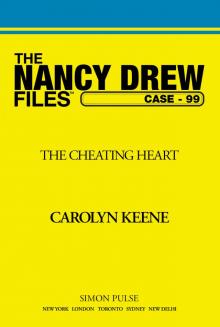 The Cheating Heart
The Cheating Heart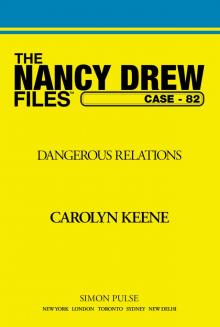 Dangerous Relations
Dangerous Relations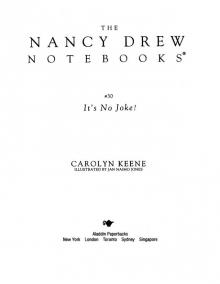 It's No Joke!
It's No Joke!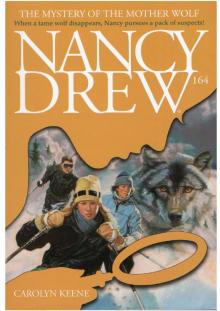 The Mystery of the Mother Wolf
The Mystery of the Mother Wolf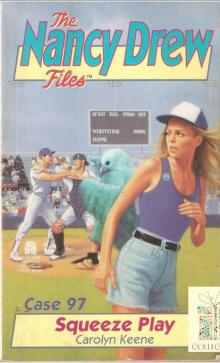 097 Squeeze Play
097 Squeeze Play Secret at Mystic Lake
Secret at Mystic Lake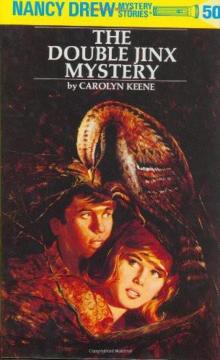 The Double Jinx Mystery
The Double Jinx Mystery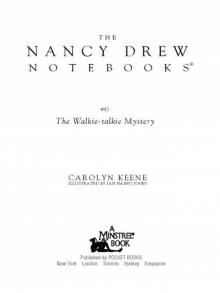 The Walkie Talkie Mystery
The Walkie Talkie Mystery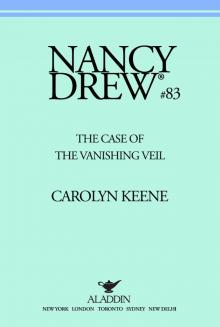 The Case of the Vanishing Veil
The Case of the Vanishing Veil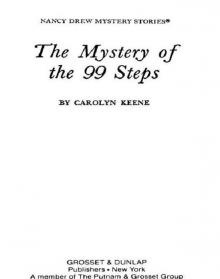 The Mystery of the 99 Steps
The Mystery of the 99 Steps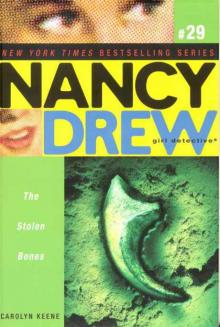 The Stolen Bones
The Stolen Bones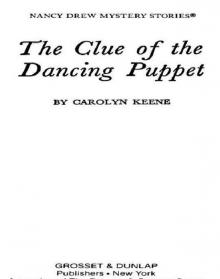 The Clue of the Dancing Puppet
The Clue of the Dancing Puppet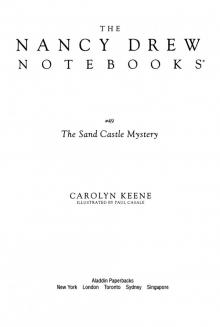 The Sand Castle Mystery
The Sand Castle Mystery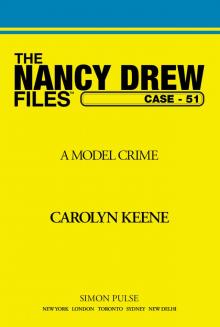 A Model Crime
A Model Crime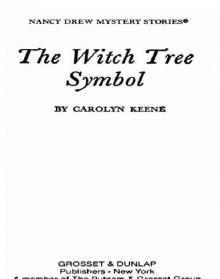 The Witch Tree Symbol
The Witch Tree Symbol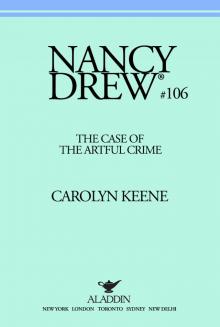 The Case of the Artful Crime
The Case of the Artful Crime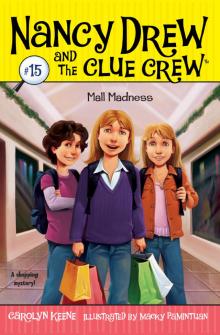 Mall Madness
Mall Madness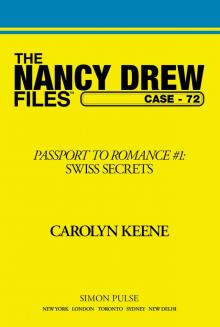 Swiss Secrets
Swiss Secrets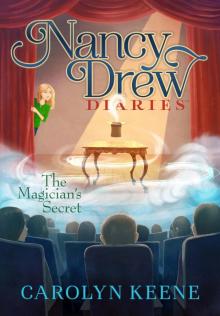 The Magician's Secret
The Magician's Secret Tall, Dark and Deadly
Tall, Dark and Deadly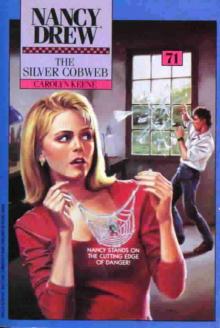 The Silver Cobweb
The Silver Cobweb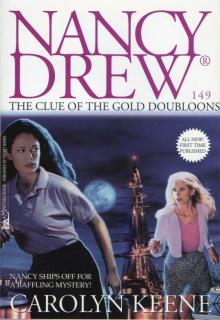 The Clue of the Gold Doubloons
The Clue of the Gold Doubloons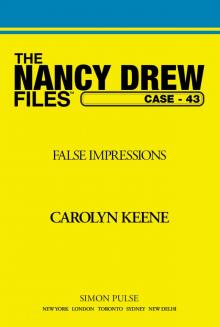 False Impressions
False Impressions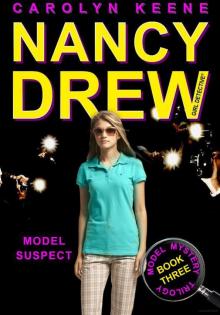 Model Suspect
Model Suspect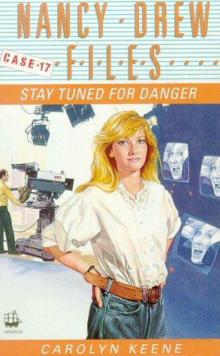 Stay Tuned for Danger
Stay Tuned for Danger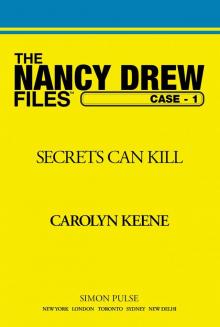 Secrets Can Kill
Secrets Can Kill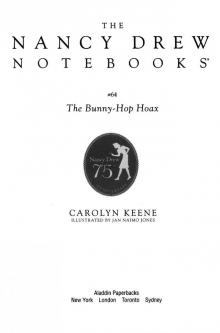 The Bunny-Hop Hoax
The Bunny-Hop Hoax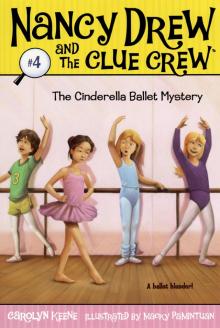 The Cinderella Ballet Mystery
The Cinderella Ballet Mystery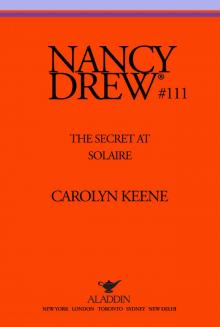 The Secret at Solaire
The Secret at Solaire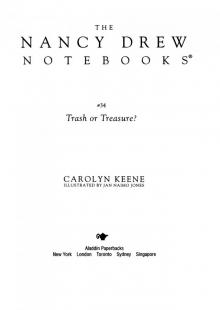 Trash or Treasure?
Trash or Treasure?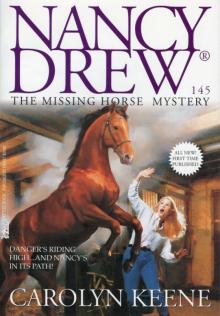 The Missing Horse Mystery
The Missing Horse Mystery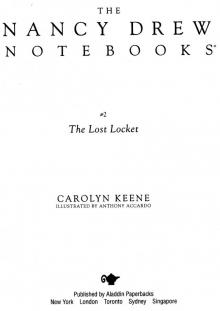 The Lost Locket
The Lost Locket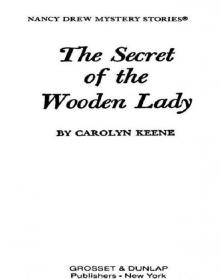 The Secret of the Wooden Lady
The Secret of the Wooden Lady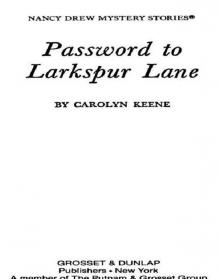 Password to Larkspur Lane
Password to Larkspur Lane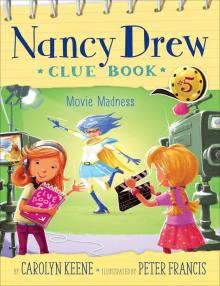 Movie Madness
Movie Madness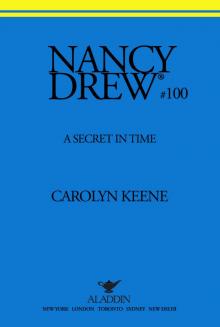 A Secret in Time
A Secret in Time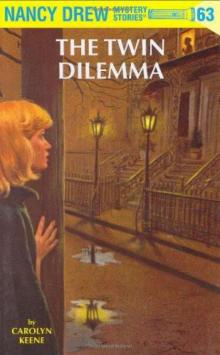 The Twin Dilemma
The Twin Dilemma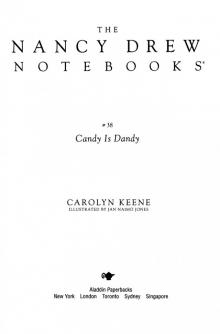 Candy Is Dandy
Candy Is Dandy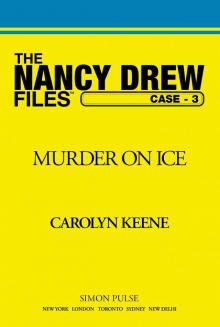 Murder on Ice
Murder on Ice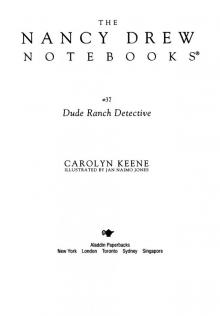 Dude Ranch Detective
Dude Ranch Detective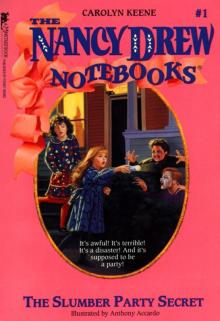 The Slumber Party Secret
The Slumber Party Secret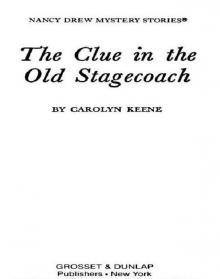 The Clue in the Old Stagecoach
The Clue in the Old Stagecoach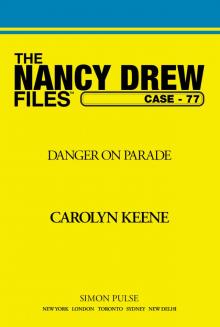 Danger on Parade
Danger on Parade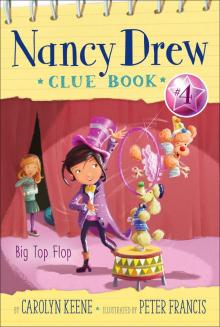 Big Top Flop
Big Top Flop Strangers on a Train
Strangers on a Train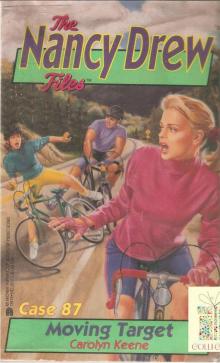 087 Moving Target
087 Moving Target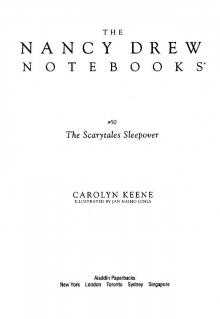 The Scarytales Sleepover
The Scarytales Sleepover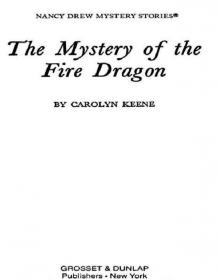 The Mystery of the Fire Dragon
The Mystery of the Fire Dragon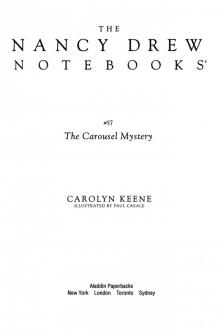 The Carousel Mystery
The Carousel Mystery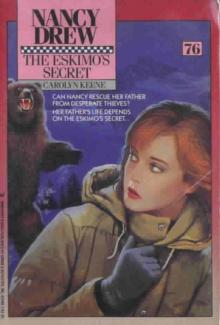 The Eskimo's Secret
The Eskimo's Secret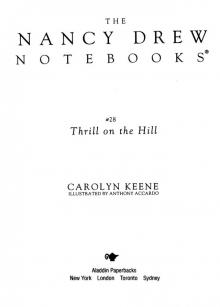 Thrill on the Hill
Thrill on the Hill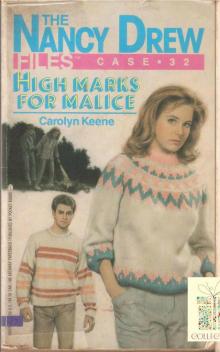 032 High Marks for Malice
032 High Marks for Malice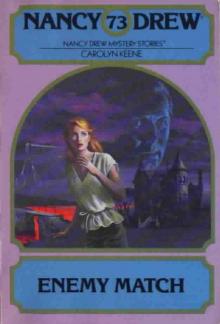 Enemy Match
Enemy Match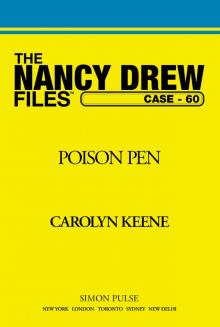 Poison Pen
Poison Pen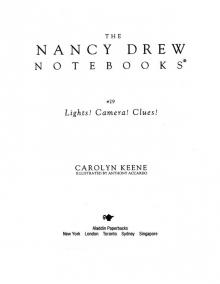 Lights, Camera . . . Cats!
Lights, Camera . . . Cats!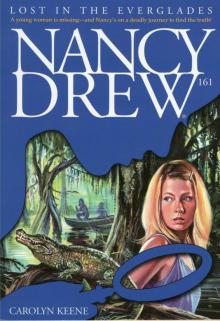 Lost in the Everglades
Lost in the Everglades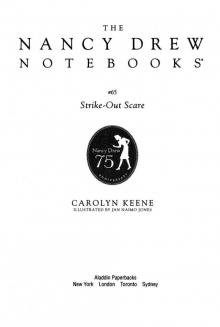 Strike-Out Scare
Strike-Out Scare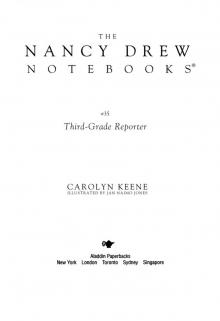 Third-Grade Reporter
Third-Grade Reporter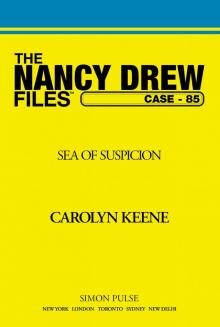 Sea of Suspicion
Sea of Suspicion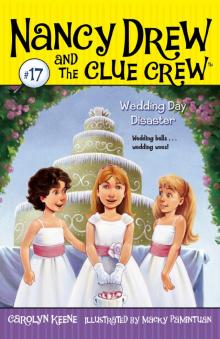 Wedding Day Disaster
Wedding Day Disaster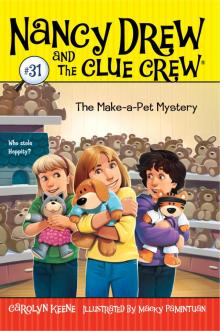 The Make-A-Pet Mystery
The Make-A-Pet Mystery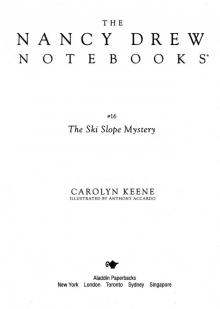 The Ski Slope Mystery
The Ski Slope Mystery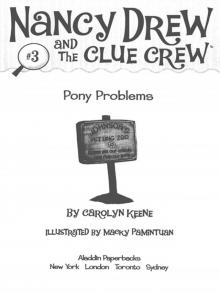 Pony Problems
Pony Problems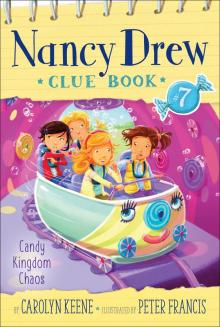 Candy Kingdom Chaos
Candy Kingdom Chaos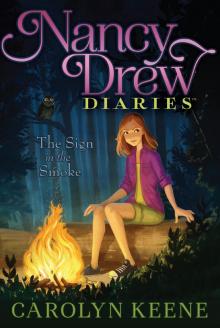 The Sign in the Smoke
The Sign in the Smoke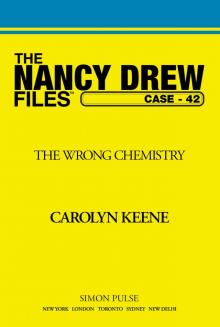 The Wrong Chemistry
The Wrong Chemistry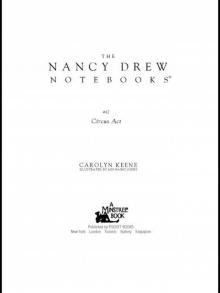 Circus Act
Circus Act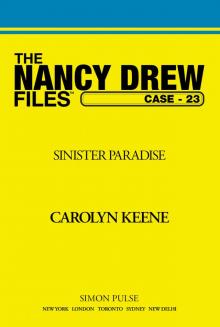 Sinister Paradise
Sinister Paradise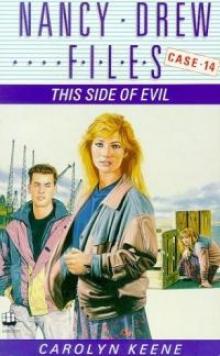 This Side of Evil
This Side of Evil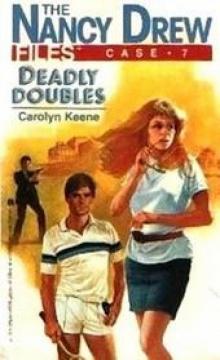 Deadly Doubles
Deadly Doubles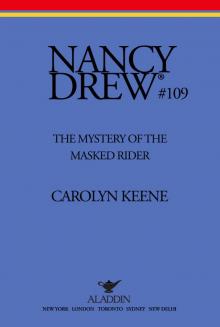 The Mystery of the Masked Rider
The Mystery of the Masked Rider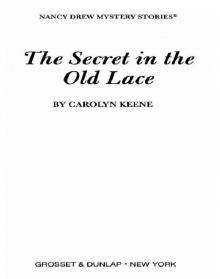 The Secret in the Old Lace
The Secret in the Old Lace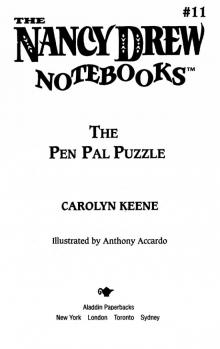 The Pen Pal Puzzle
The Pen Pal Puzzle Without a Trace
Without a Trace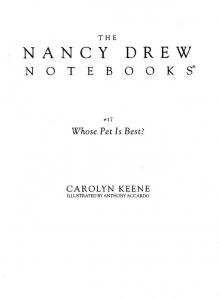 Whose Pet Is Best?
Whose Pet Is Best?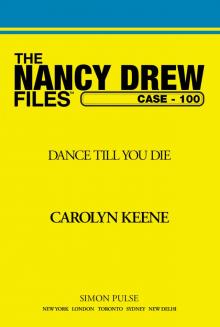 Dance Till You Die
Dance Till You Die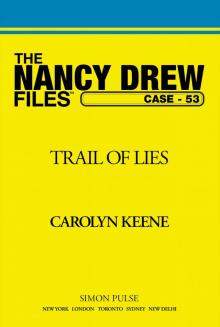 Trail of Lies
Trail of Lies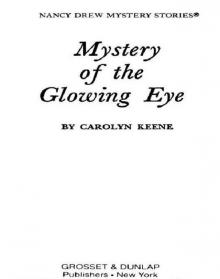 Mystery of the Glowing Eye
Mystery of the Glowing Eye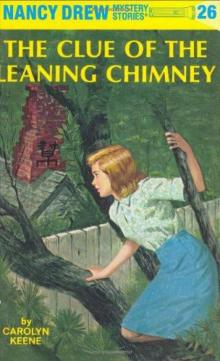 The Clue of the Leaning Chimney
The Clue of the Leaning Chimney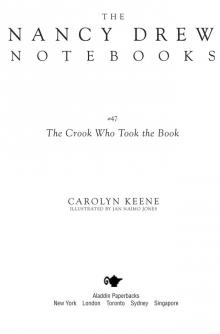 The Crook Who Took the Book
The Crook Who Took the Book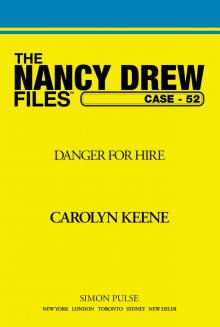 Danger for Hire
Danger for Hire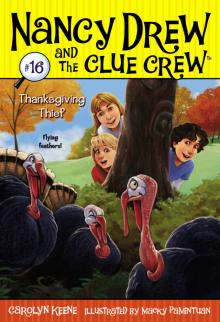 Thanksgiving Thief
Thanksgiving Thief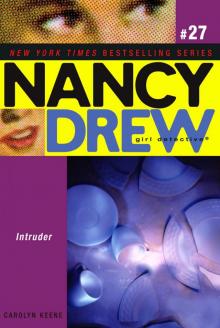 Intruder!
Intruder!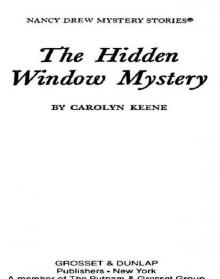 The Hidden Window Mystery
The Hidden Window Mystery Win, Place or Die
Win, Place or Die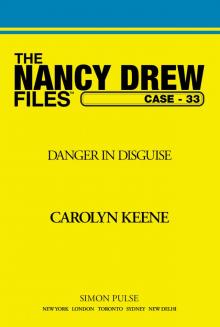 Danger in Disguise
Danger in Disguise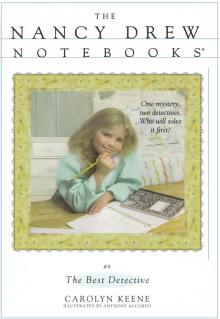 The Best Detective
The Best Detective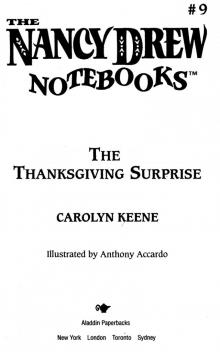 The Thanksgiving Surprise
The Thanksgiving Surprise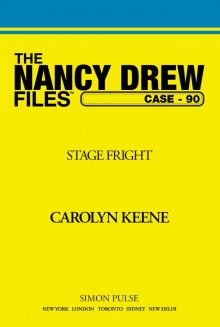 Stage Fright
Stage Fright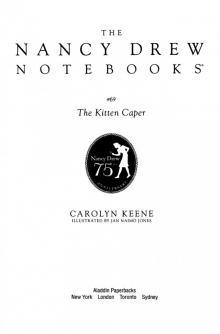 The Kitten Caper
The Kitten Caper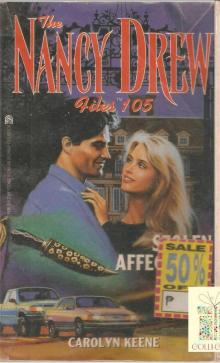 Stolen Affections
Stolen Affections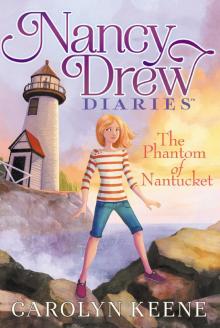 The Phantom of Nantucket
The Phantom of Nantucket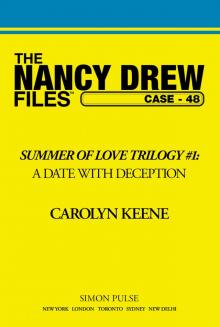 Date With Deception
Date With Deception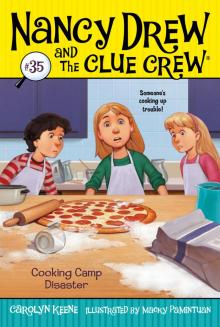 Cooking Camp Disaster
Cooking Camp Disaster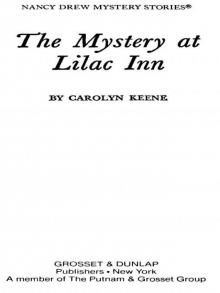 The Mystery at Lilac Inn
The Mystery at Lilac Inn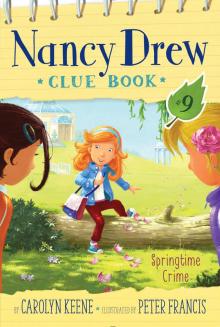 Springtime Crime
Springtime Crime Action!
Action! Into Thin Air
Into Thin Air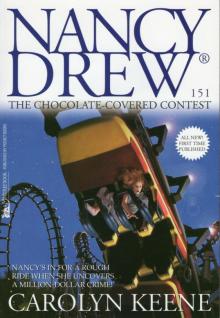 The Chocolate-Covered Contest
The Chocolate-Covered Contest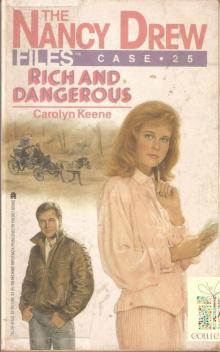 025 Rich and Dangerous
025 Rich and Dangerous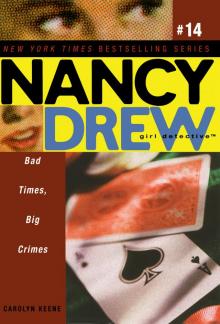 Bad Times, Big Crimes
Bad Times, Big Crimes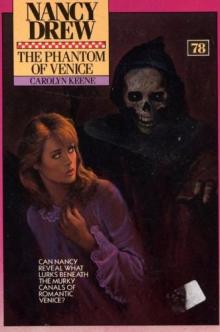 078 The Phantom Of Venice
078 The Phantom Of Venice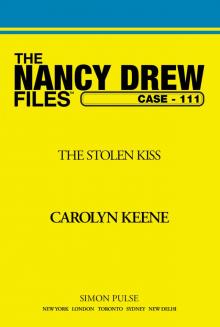 The Stolen Kiss
The Stolen Kiss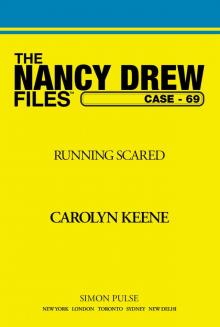 Running Scared
Running Scared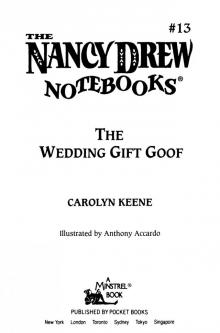 The Wedding Gift Goof
The Wedding Gift Goof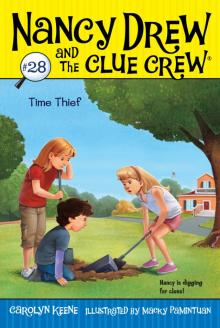 Time Thief
Time Thief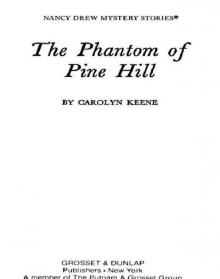 The Phantom of Pine Hill
The Phantom of Pine Hill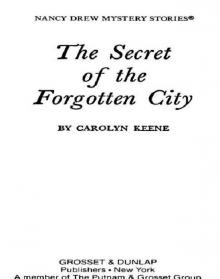 The Secret of the Forgotten City
The Secret of the Forgotten City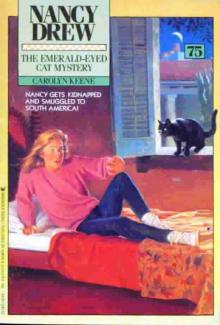 The Emerald-Eyed Cat Mystery
The Emerald-Eyed Cat Mystery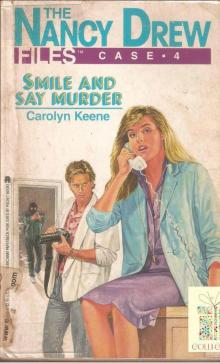 004 Smile and Say Murder
004 Smile and Say Murder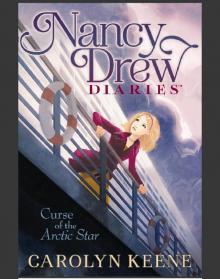 Curse of the Arctic Star
Curse of the Arctic Star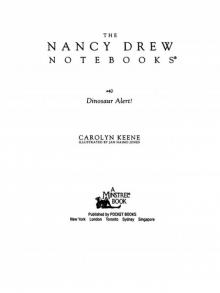 Dinosaur Alert!
Dinosaur Alert!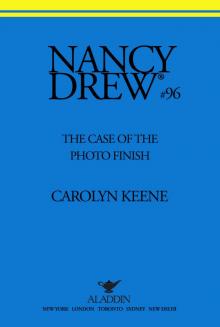 The Case of the Photo Finish
The Case of the Photo Finish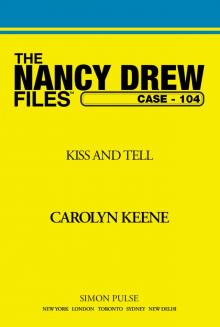 Kiss and Tell
Kiss and Tell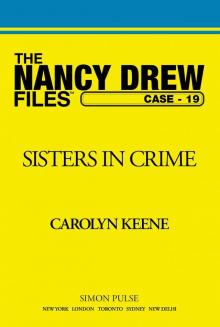 Sisters in Crime
Sisters in Crime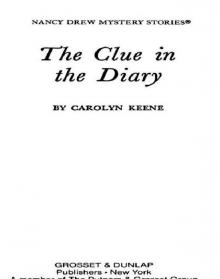 The Clue in the Diary
The Clue in the Diary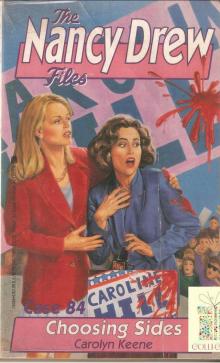 084 Choosing Sides
084 Choosing Sides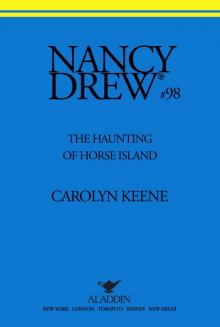 Haunting of Horse Island
Haunting of Horse Island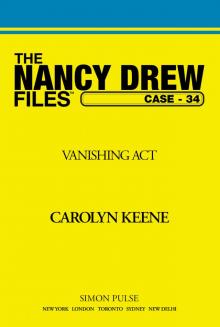 Vanishing Act
Vanishing Act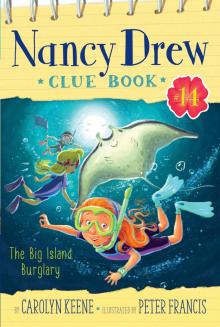 The Big Island Burglary
The Big Island Burglary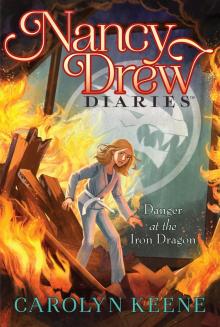 Danger at the Iron Dragon
Danger at the Iron Dragon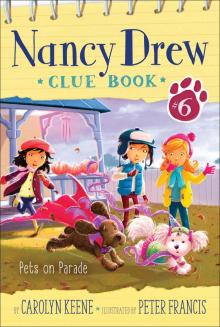 Pets on Parade
Pets on Parade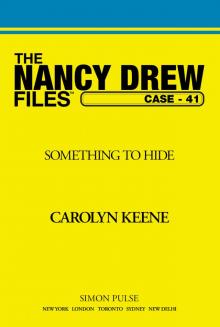 Something to Hide
Something to Hide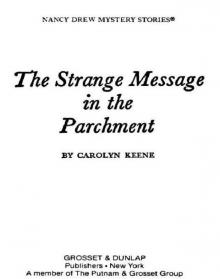 The Strange Message in the Parchment
The Strange Message in the Parchment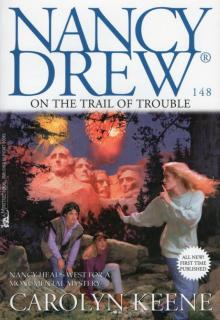 On the Trail of Trouble
On the Trail of Trouble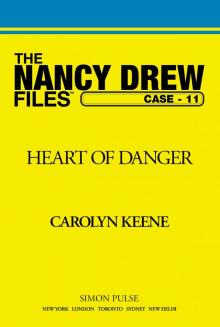 Heart of Danger
Heart of Danger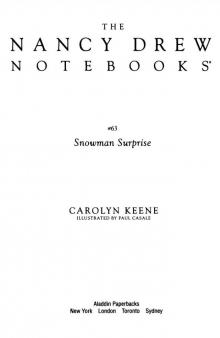 The Snowman Surprise
The Snowman Surprise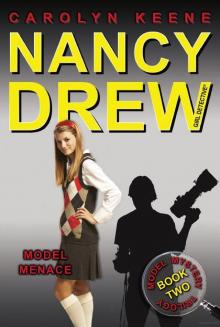 Model Menace
Model Menace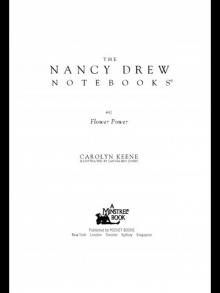 Flower Power
Flower Power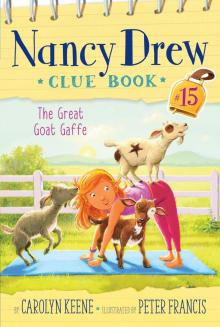 The Great Goat Gaffe
The Great Goat Gaffe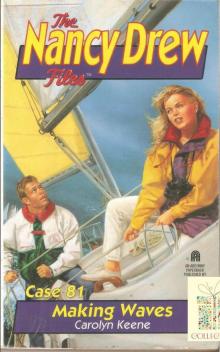 081 Making Waves
081 Making Waves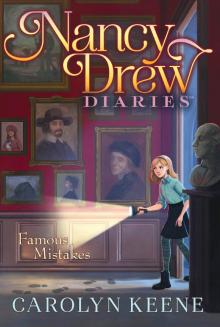 Famous Mistakes
Famous Mistakes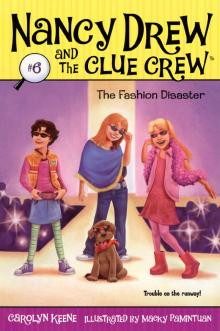 The Fashion Disaster
The Fashion Disaster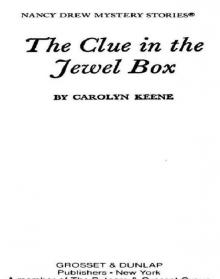 The Clue in the Jewel Box
The Clue in the Jewel Box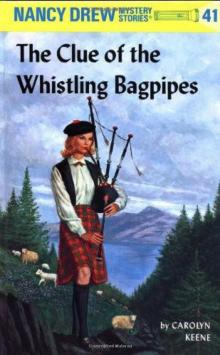 The Clue of the Whistling Bagpipes
The Clue of the Whistling Bagpipes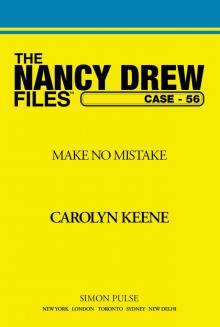 Make No Mistake
Make No Mistake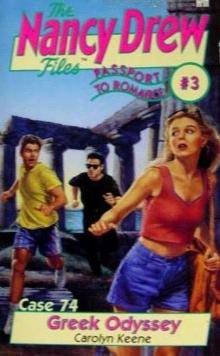 Greek Odyssey
Greek Odyssey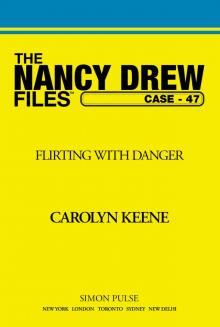 Flirting With Danger
Flirting With Danger Double Take
Double Take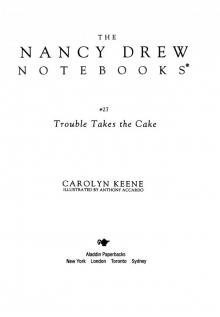 Trouble Takes the Cake
Trouble Takes the Cake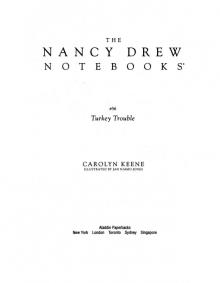 Turkey Trouble
Turkey Trouble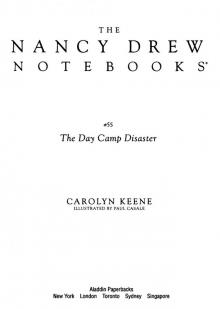 The Day Camp Disaster
The Day Camp Disaster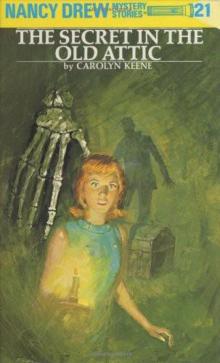 The Secret in the Old Attic
The Secret in the Old Attic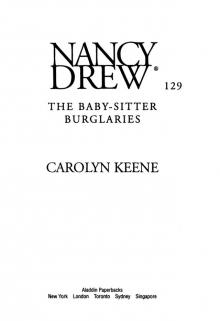 The Baby-Sitter Burglaries
The Baby-Sitter Burglaries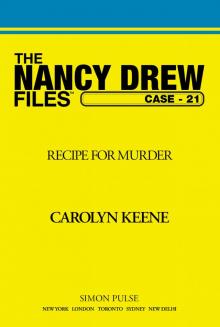 Recipe for Murder
Recipe for Murder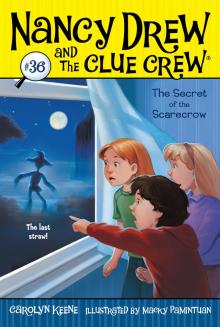 The Secret of the Scarecrow
The Secret of the Scarecrow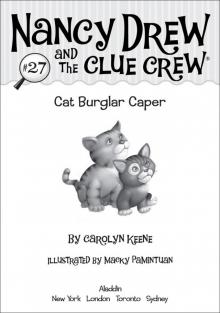 Cat Burglar Caper
Cat Burglar Caper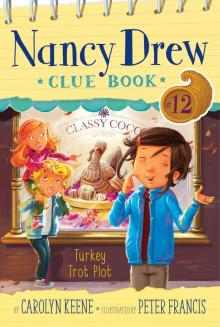 Turkey Trot Plot
Turkey Trot Plot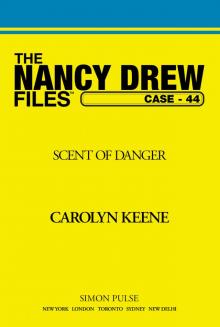 Scent of Danger
Scent of Danger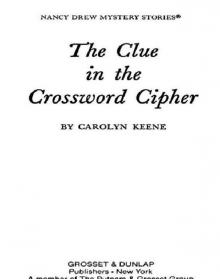 The Clue in the Crossword Cipher
The Clue in the Crossword Cipher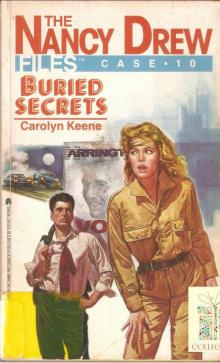 010 Buried Secrets
010 Buried Secrets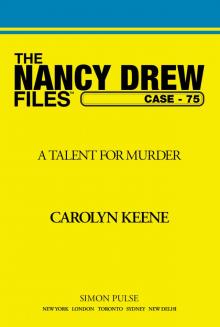 A Talent for Murder
A Talent for Murder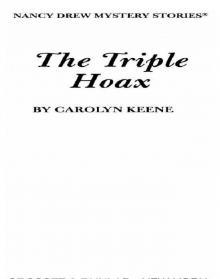 The Triple Hoax
The Triple Hoax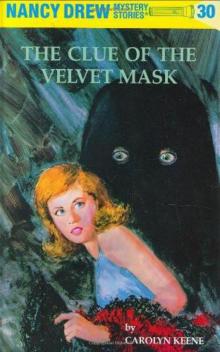 The Clue of the Velvet Mask
The Clue of the Velvet Mask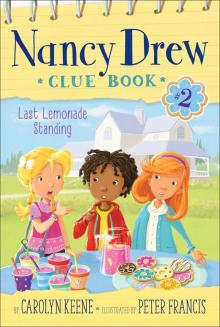 Last Lemonade Standing
Last Lemonade Standing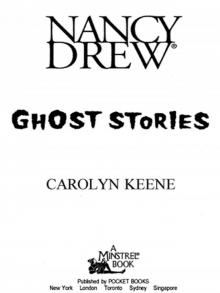 The Ghost of Blackwood Hall
The Ghost of Blackwood Hall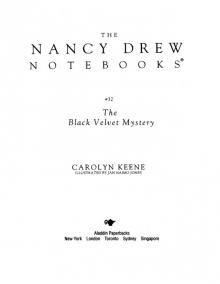 The Black Velvet Mystery
The Black Velvet Mystery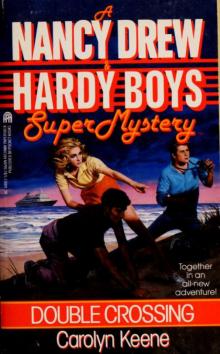 Double Crossing
Double Crossing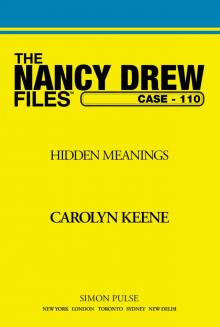 Hidden Meanings
Hidden Meanings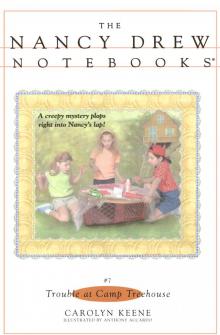 Trouble at Camp Treehouse
Trouble at Camp Treehouse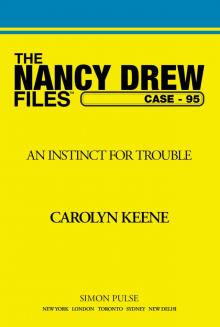 An Instinct for Trouble
An Instinct for Trouble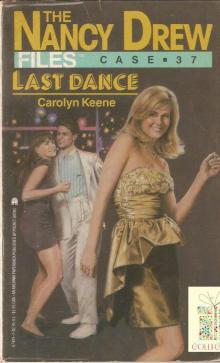 037 Last Dance
037 Last Dance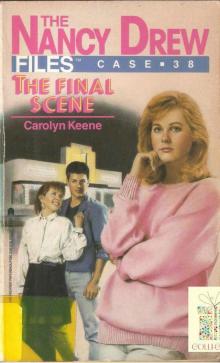 038 The Final Scene
038 The Final Scene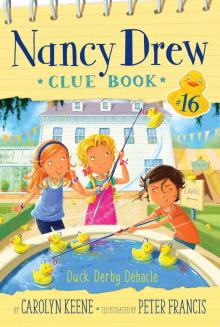 Duck Derby Debacle
Duck Derby Debacle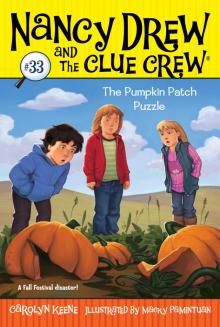 The Pumpkin Patch Puzzle
The Pumpkin Patch Puzzle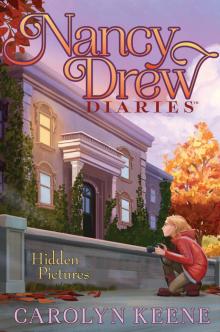 Hidden Pictures
Hidden Pictures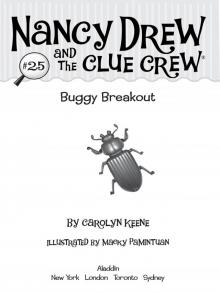 Buggy Breakout
Buggy Breakout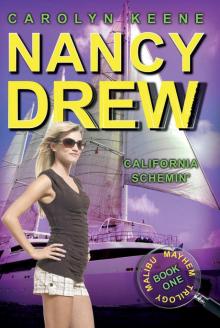 California Schemin'
California Schemin'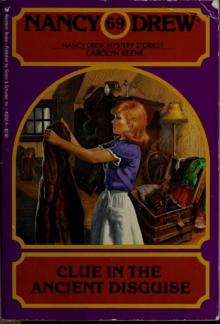 Clue in the Ancient Disguise
Clue in the Ancient Disguise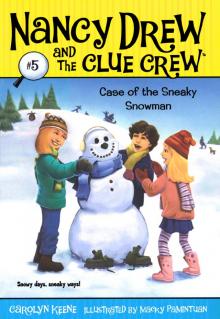 Case of the Sneaky Snowman
Case of the Sneaky Snowman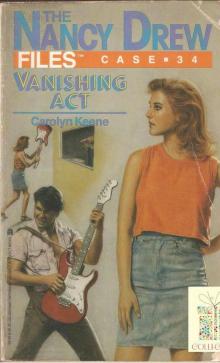 034 Vanishing Act
034 Vanishing Act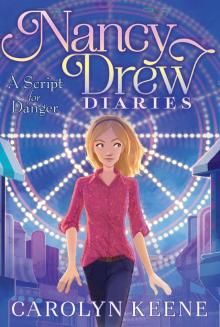 A Script for Danger
A Script for Danger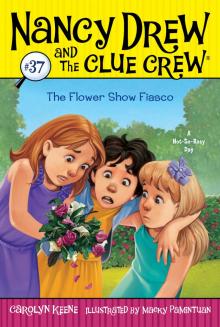 The Flower Show Fiasco
The Flower Show Fiasco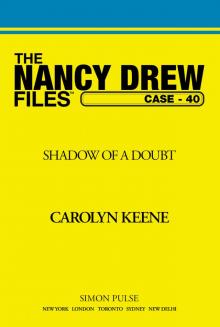 Shadow of a Doubt
Shadow of a Doubt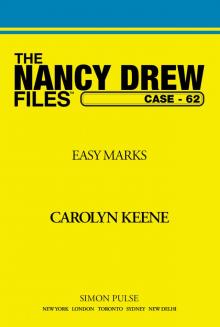 Easy Marks
Easy Marks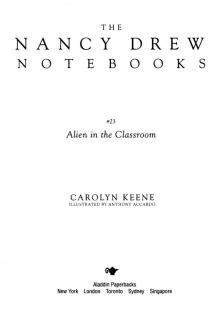 Alien in the Classroom
Alien in the Classroom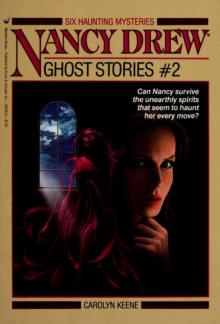 Ghost Stories, #2 (Nancy Drew)
Ghost Stories, #2 (Nancy Drew)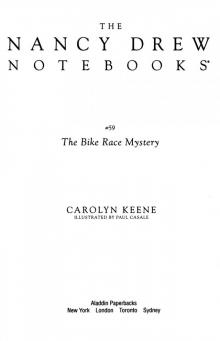 The Bike Race Mystery
The Bike Race Mystery False Pretenses
False Pretenses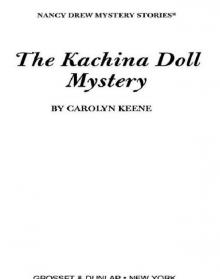 The Kachina Doll Mystery
The Kachina Doll Mystery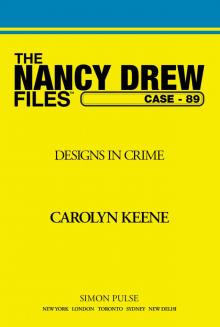 Designs in Crime
Designs in Crime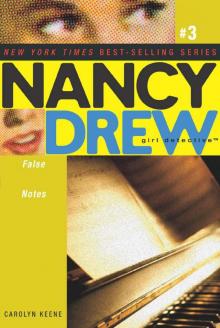 False Notes
False Notes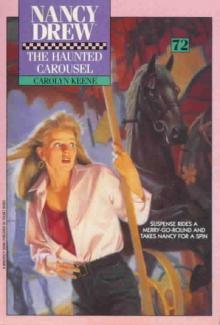 The Haunted Carousel
The Haunted Carousel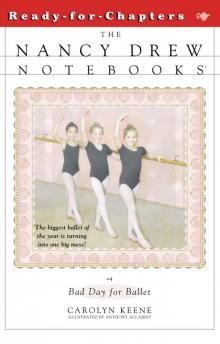 Bad Day for Ballet
Bad Day for Ballet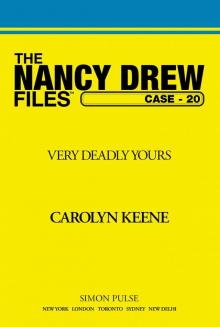 Very Deadly Yours
Very Deadly Yours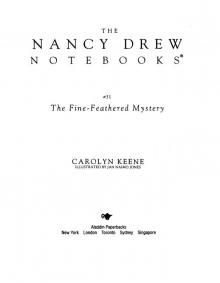 The Fine-Feathered Mystery
The Fine-Feathered Mystery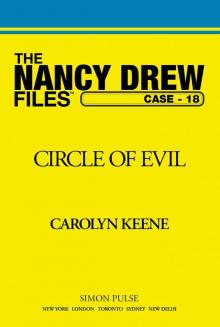 Circle of Evil
Circle of Evil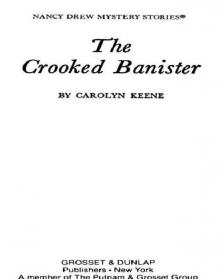 The Crooked Banister
The Crooked Banister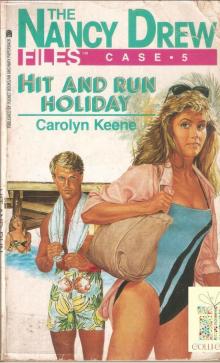 005 Hit and Run Holiday
005 Hit and Run Holiday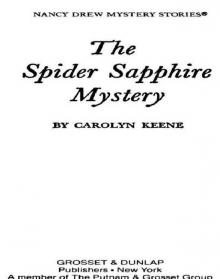 The Spider Sapphire Mystery
The Spider Sapphire Mystery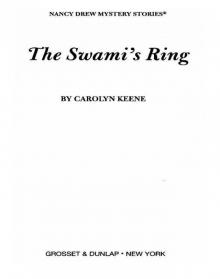 The Swami's Ring
The Swami's Ring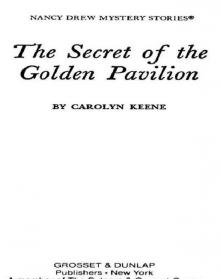 The Secret of the Golden Pavilion
The Secret of the Golden Pavilion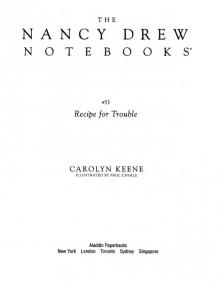 Recipe for Trouble
Recipe for Trouble Betrayed by Love
Betrayed by Love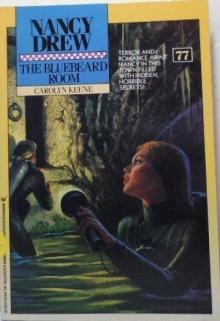 The Bluebeard Room
The Bluebeard Room Sweet Revenge
Sweet Revenge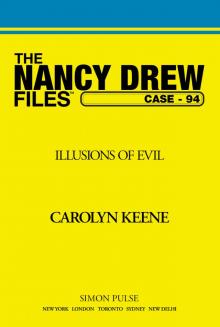 Illusions of Evil
Illusions of Evil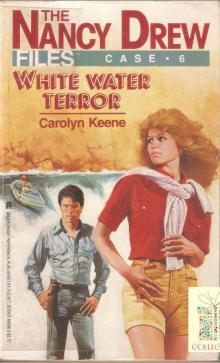 006 White Water Terror
006 White Water Terror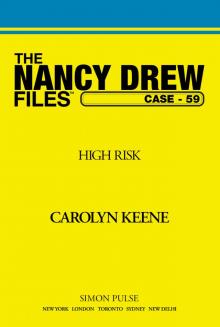 High Risk
High Risk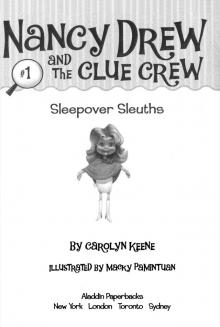 Sleepover Sleuths
Sleepover Sleuths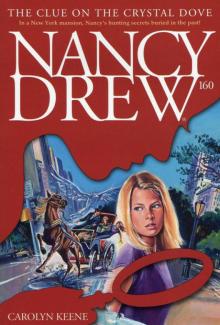 The Clue on the Crystal Dove
The Clue on the Crystal Dove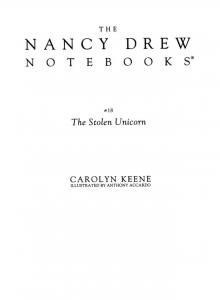 The Stolen Unicorn
The Stolen Unicorn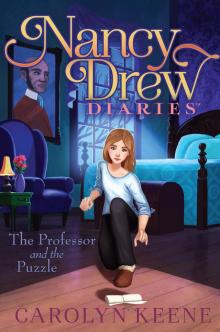 The Professor and the Puzzle
The Professor and the Puzzle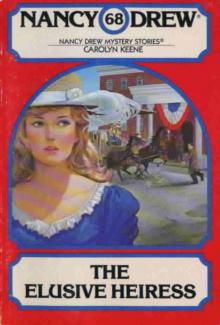 The Elusive Heiress
The Elusive Heiress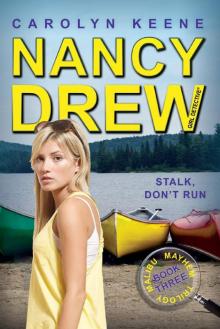 Stalk, Don't Run
Stalk, Don't Run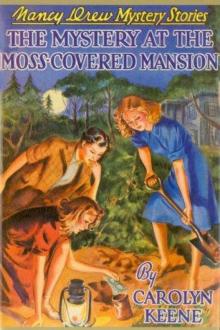 The Mystery at the Moss-Covered Mansion
The Mystery at the Moss-Covered Mansion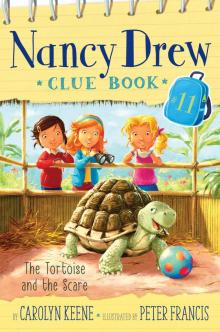 The Tortoise and the Scare
The Tortoise and the Scare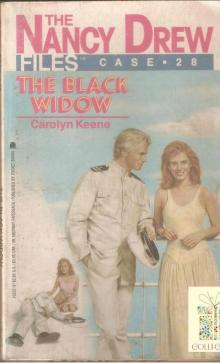 028 The Black Widow
028 The Black Widow Big Worry in Wonderland
Big Worry in Wonderland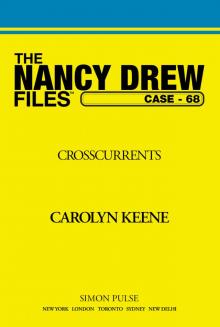 Crosscurrents
Crosscurrents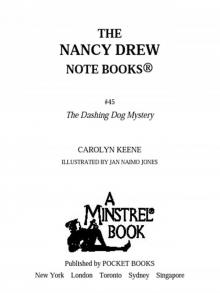 The Dashing Dog Mystery
The Dashing Dog Mystery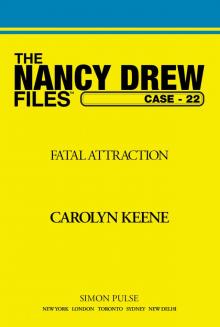 Fatal Attraction
Fatal Attraction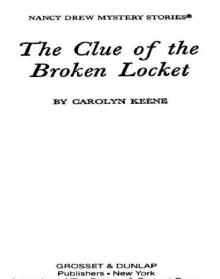 The Clue of the Broken Locket
The Clue of the Broken Locket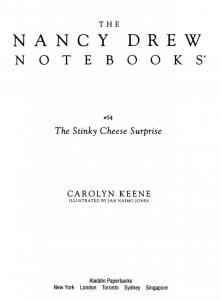 The Stinky Cheese Surprise
The Stinky Cheese Surprise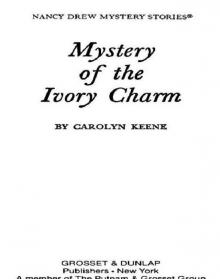 Mystery of the Ivory Charm
Mystery of the Ivory Charm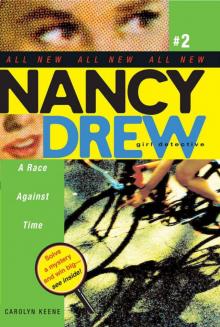 A Race Against Time
A Race Against Time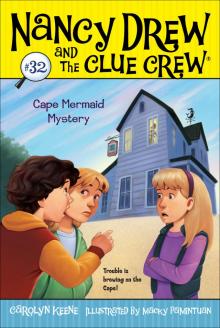 Cape Mermaid Mystery
Cape Mermaid Mystery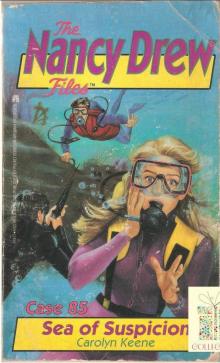 085 Sea of Suspicion
085 Sea of Suspicion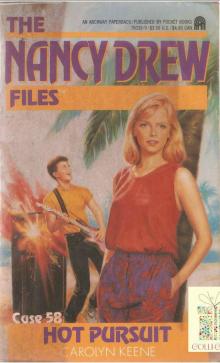 058 Hot Pursuit
058 Hot Pursuit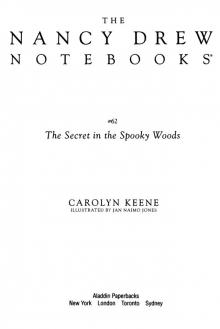 The Secret in the Spooky Woods
The Secret in the Spooky Woods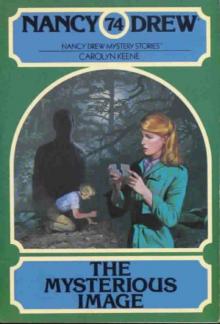 The Mysterious Image
The Mysterious Image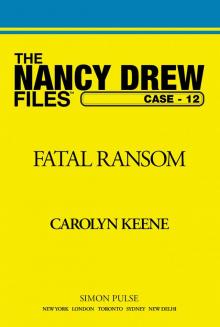 Fatal Ransom
Fatal Ransom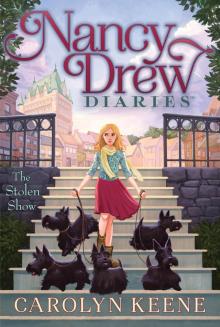 The Stolen Show
The Stolen Show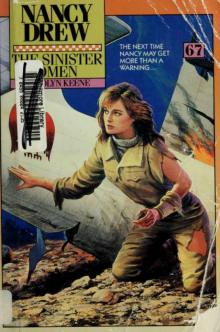 The Sinister Omen
The Sinister Omen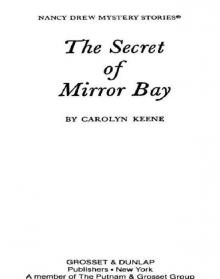 The Secret of Mirror Bay
The Secret of Mirror Bay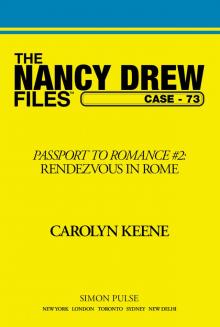 Rendezvous in Rome
Rendezvous in Rome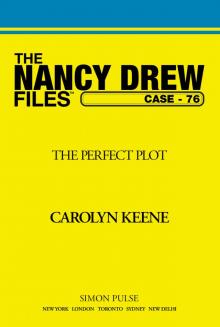 The Perfect Plot
The Perfect Plot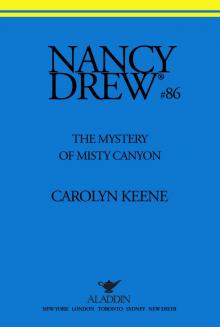 The Mystery of Misty Canyon
The Mystery of Misty Canyon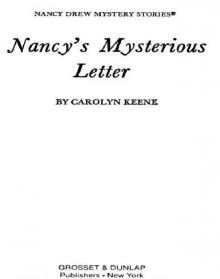 Nancy's Mysterious Letter
Nancy's Mysterious Letter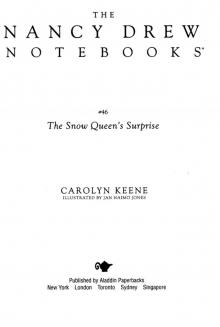 The Snow Queen's Surprise
The Snow Queen's Surprise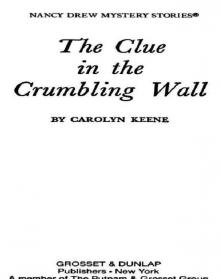 The Clue in the Crumbling Wall
The Clue in the Crumbling Wall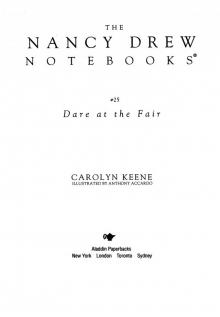 Dare at the Fair
Dare at the Fair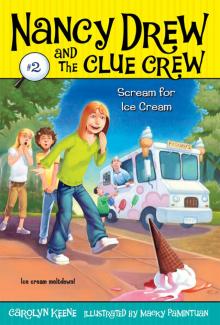 Scream for Ice Cream
Scream for Ice Cream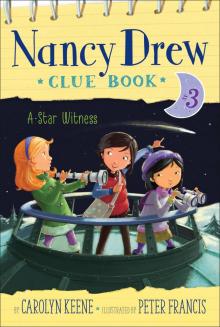 A Star Witness
A Star Witness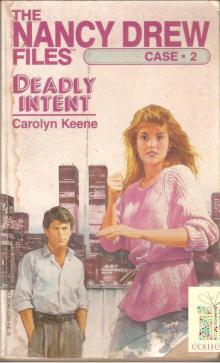 002 Deadly Intent
002 Deadly Intent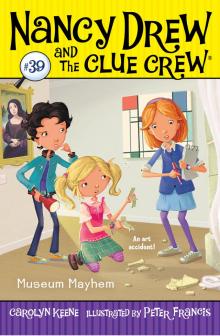 Museum Mayhem
Museum Mayhem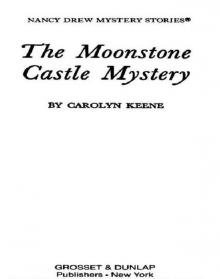 The Moonstone Castle Mystery
The Moonstone Castle Mystery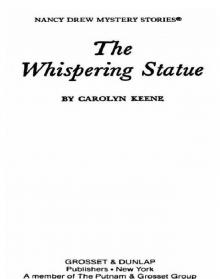 The Whispering Statue
The Whispering Statue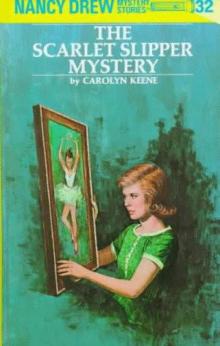 The Scarlet Slipper Mystery
The Scarlet Slipper Mystery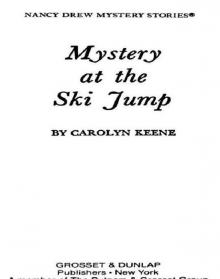 Mystery at the Ski Jump
Mystery at the Ski Jump Hot Pursuit
Hot Pursuit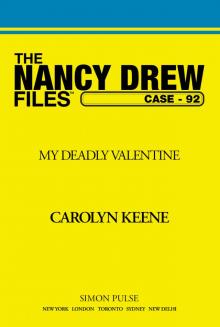 My Deadly Valentine
My Deadly Valentine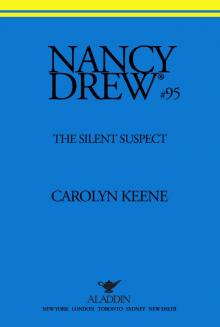 The Silent Suspect
The Silent Suspect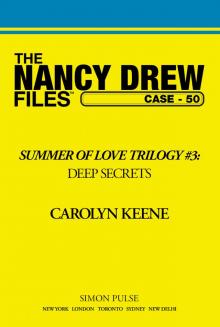 Deep Secrets
Deep Secrets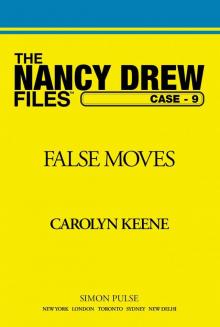 False Moves
False Moves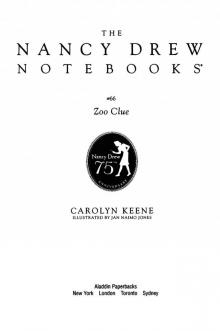 The Zoo Crew
The Zoo Crew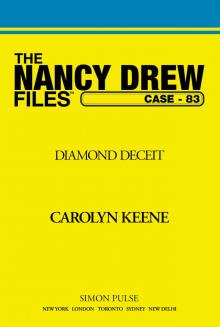 Diamond Deceit
Diamond Deceit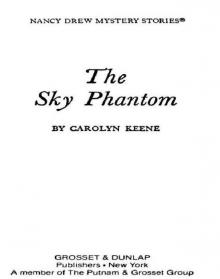 The Sky Phantom
The Sky Phantom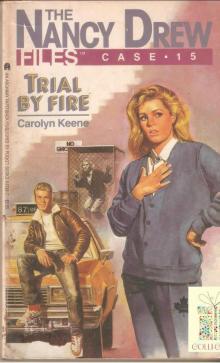 015 Trial by Fire
015 Trial by Fire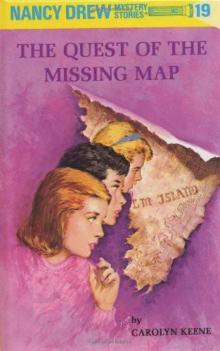 The Quest of the Missing Map
The Quest of the Missing Map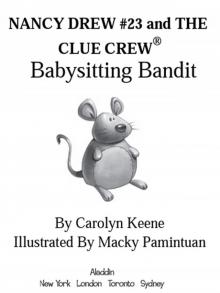 Babysitting Bandit
Babysitting Bandit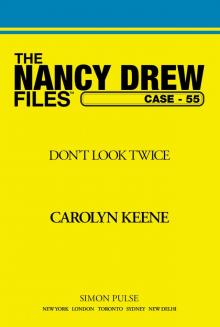 Don't Look Twice
Don't Look Twice Never Say Die
Never Say Die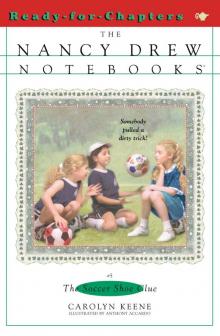 The Soccer Shoe Clue
The Soccer Shoe Clue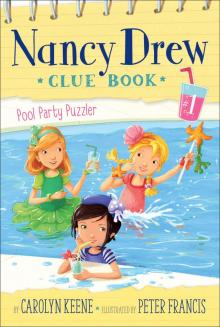 Pool Party Puzzler
Pool Party Puzzler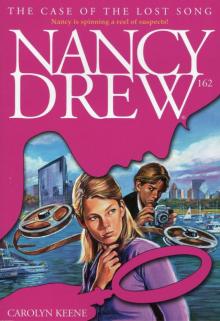 The Case of the Lost Song
The Case of the Lost Song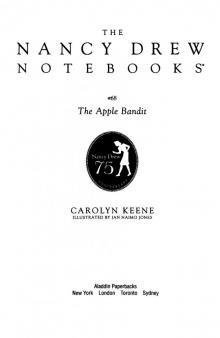 The Apple Bandit
The Apple Bandit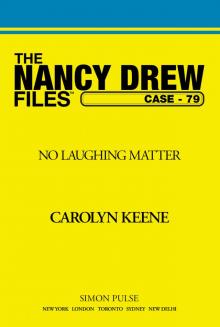 No Laughing Matter
No Laughing Matter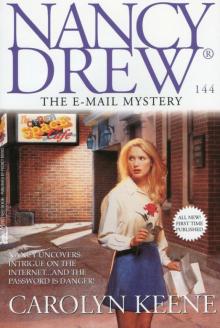 The Thirteenth Pearl
The Thirteenth Pearl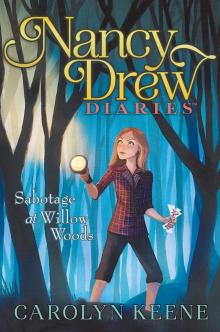 Sabotage at Willow Woods
Sabotage at Willow Woods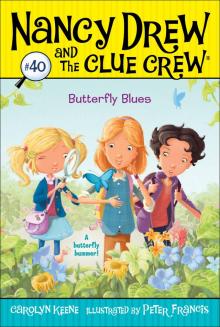 Butterfly Blues
Butterfly Blues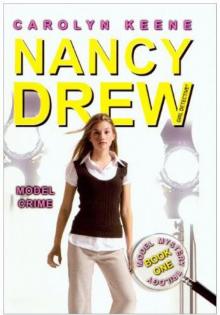 Model Crime 1
Model Crime 1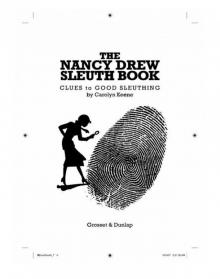 The Nancy Drew Sleuth Book
The Nancy Drew Sleuth Book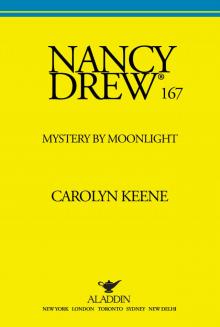 Mystery by Moonlight
Mystery by Moonlight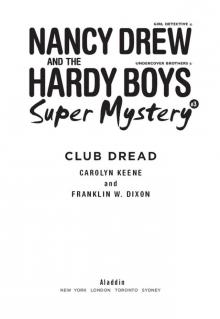 Club Dread
Club Dread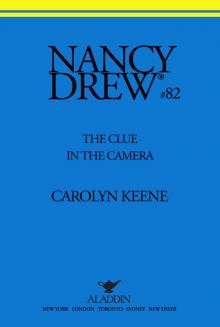 The Clue in the Camera
The Clue in the Camera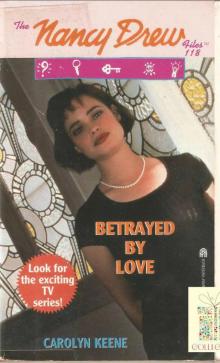 118 Betrayed By Love
118 Betrayed By Love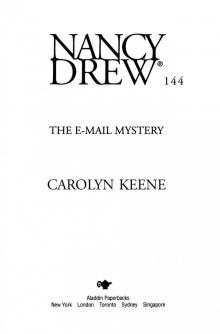 The E-Mail Mystery (Nancy Drew Book 144)
The E-Mail Mystery (Nancy Drew Book 144)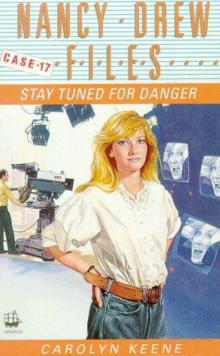 Stay Tuned for Danger: Circle of Evil
Stay Tuned for Danger: Circle of Evil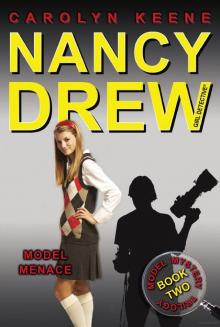 Model Menace 2
Model Menace 2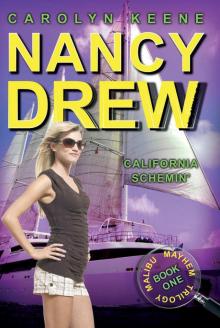 California Schemin': Book One in the Malibu Mayhem Trilogy
California Schemin': Book One in the Malibu Mayhem Trilogy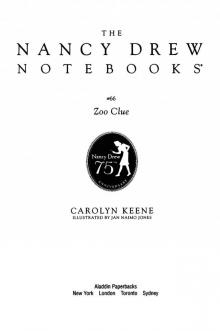 Zoo Clue (Nancy Drew Notebooks)
Zoo Clue (Nancy Drew Notebooks)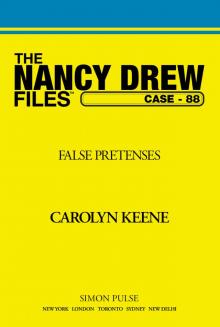 False Pretences
False Pretences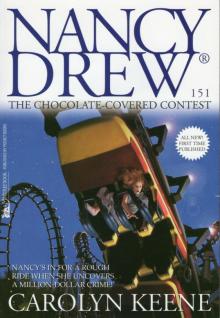 151 The Chocolate-Covered Contest
151 The Chocolate-Covered Contest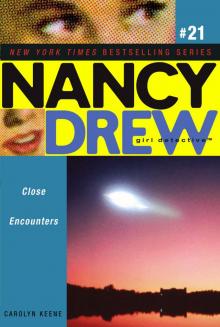 Close Encounters
Close Encounters The Emeral-Eyed Cat Mystery
The Emeral-Eyed Cat Mystery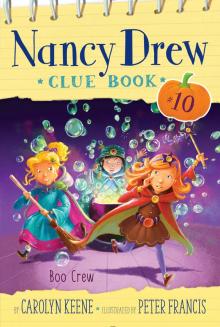 Boo Crew
Boo Crew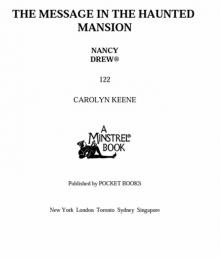 The Message in the Haunted Mansion (Nancy Drew Book 122)
The Message in the Haunted Mansion (Nancy Drew Book 122)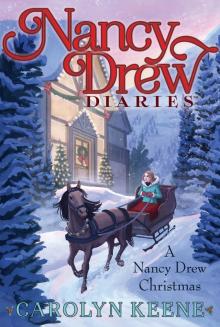 A Nancy Drew Christmas
A Nancy Drew Christmas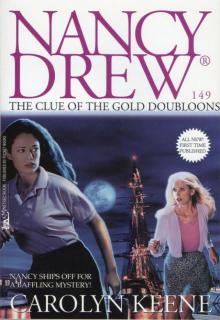 149 The Clue Of The Gold Doubloons
149 The Clue Of The Gold Doubloons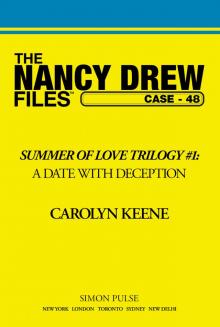 A Date with Deception
A Date with Deception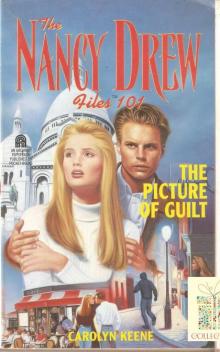 101 The Picture of Guilt
101 The Picture of Guilt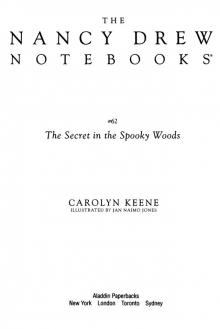 The Secret in the Spooky Woods (Nancy Drew Notebooks Book 62)
The Secret in the Spooky Woods (Nancy Drew Notebooks Book 62)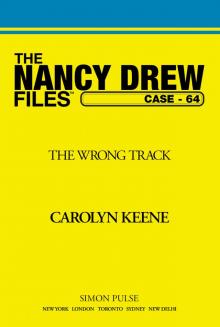 The Wrong Track
The Wrong Track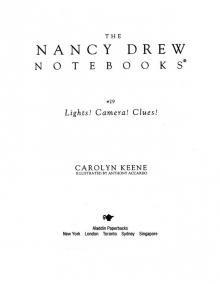 Lights! Camera! Clues!
Lights! Camera! Clues!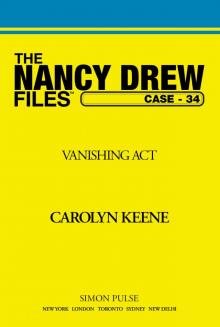 The Vanishing Act
The Vanishing Act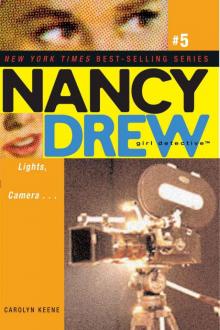 Lights, Camera . . .
Lights, Camera . . .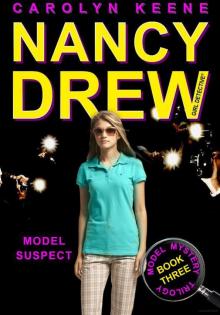 Model Suspect 3
Model Suspect 3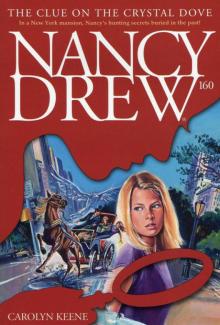 160 The Clue On The Crystal Dove
160 The Clue On The Crystal Dove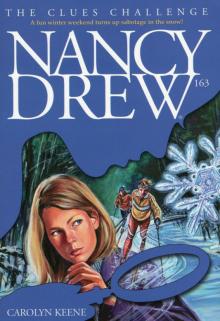 163 The Clues Challenge
163 The Clues Challenge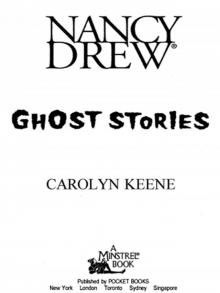 Ghost Stories (Nancy Drew)
Ghost Stories (Nancy Drew)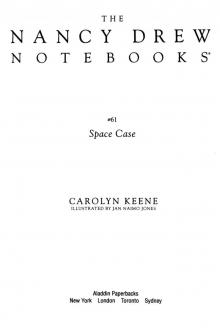 Space Case (Nancy Drew Notebooks Book 61)
Space Case (Nancy Drew Notebooks Book 61)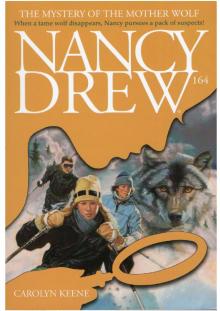 164 The Mystery Of The Mother Wolf
164 The Mystery Of The Mother Wolf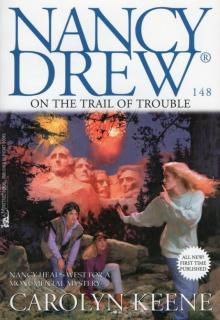 148 On The Trail Of Trouble
148 On The Trail Of Trouble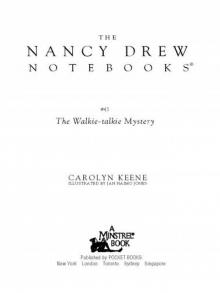 The Walkie-Talkie Mystery
The Walkie-Talkie Mystery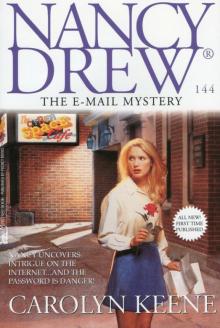 The E-Mail Mystery
The E-Mail Mystery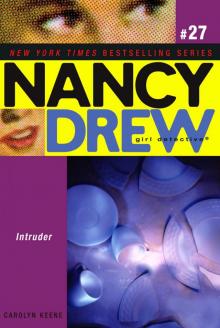 Intruder (Nancy Drew (All New) Girl Detective)
Intruder (Nancy Drew (All New) Girl Detective)![The Stolen Relic [Nancy Drew Girl Detective 007] Read online](http://i1.bookreadfree.com/i2/04/11/the_stolen_relic_nancy_drew_girl_detective_007_preview.jpg) The Stolen Relic [Nancy Drew Girl Detective 007]
The Stolen Relic [Nancy Drew Girl Detective 007]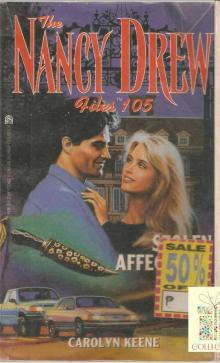 105 Stolen Affections
105 Stolen Affections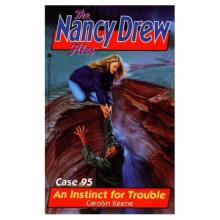 An Instict for Trouble
An Instict for Trouble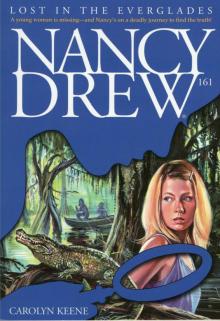 161 Lost In The Everglades
161 Lost In The Everglades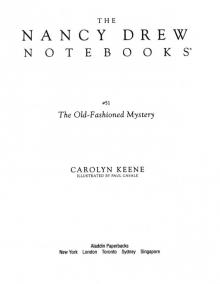 The Old-Fashioned Mystery
The Old-Fashioned Mystery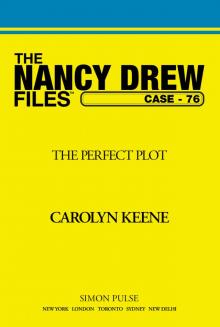 Perfect Plot
Perfect Plot